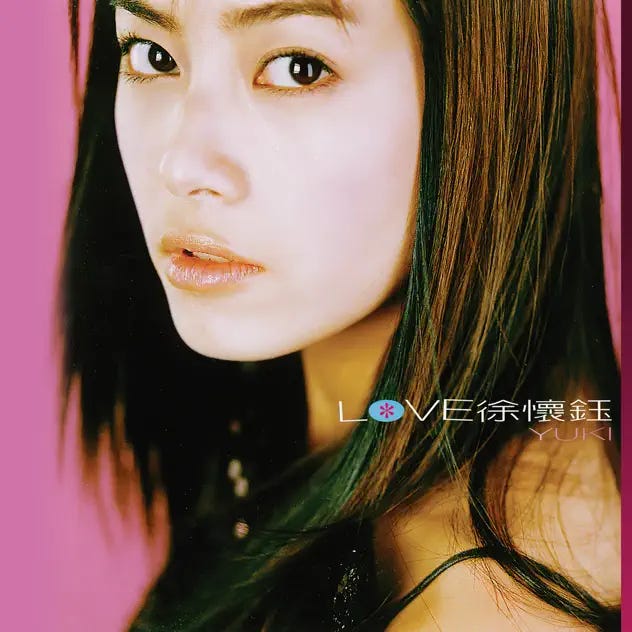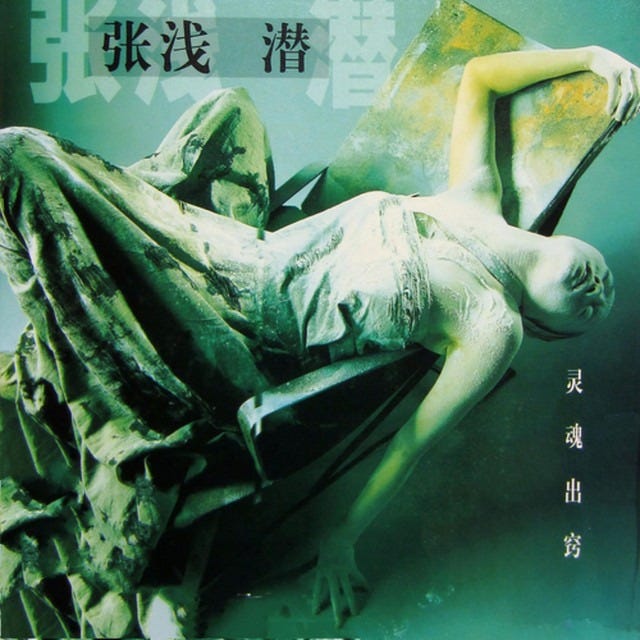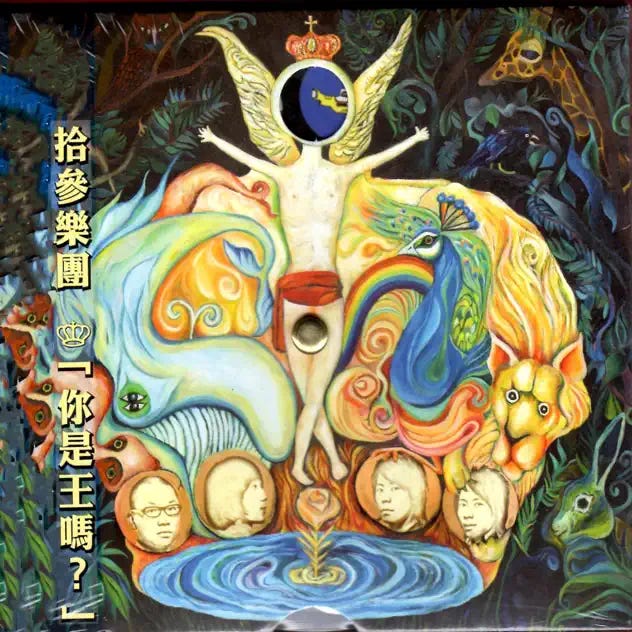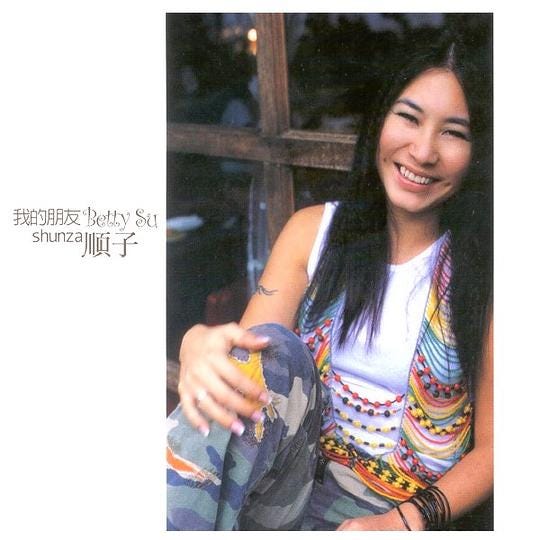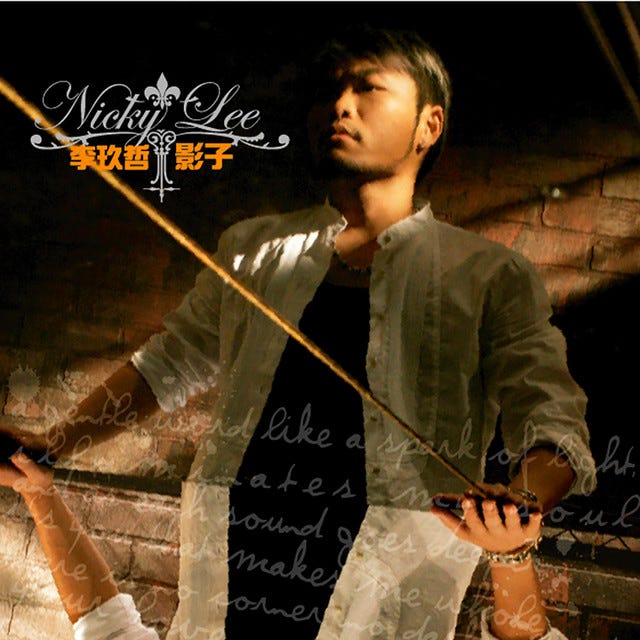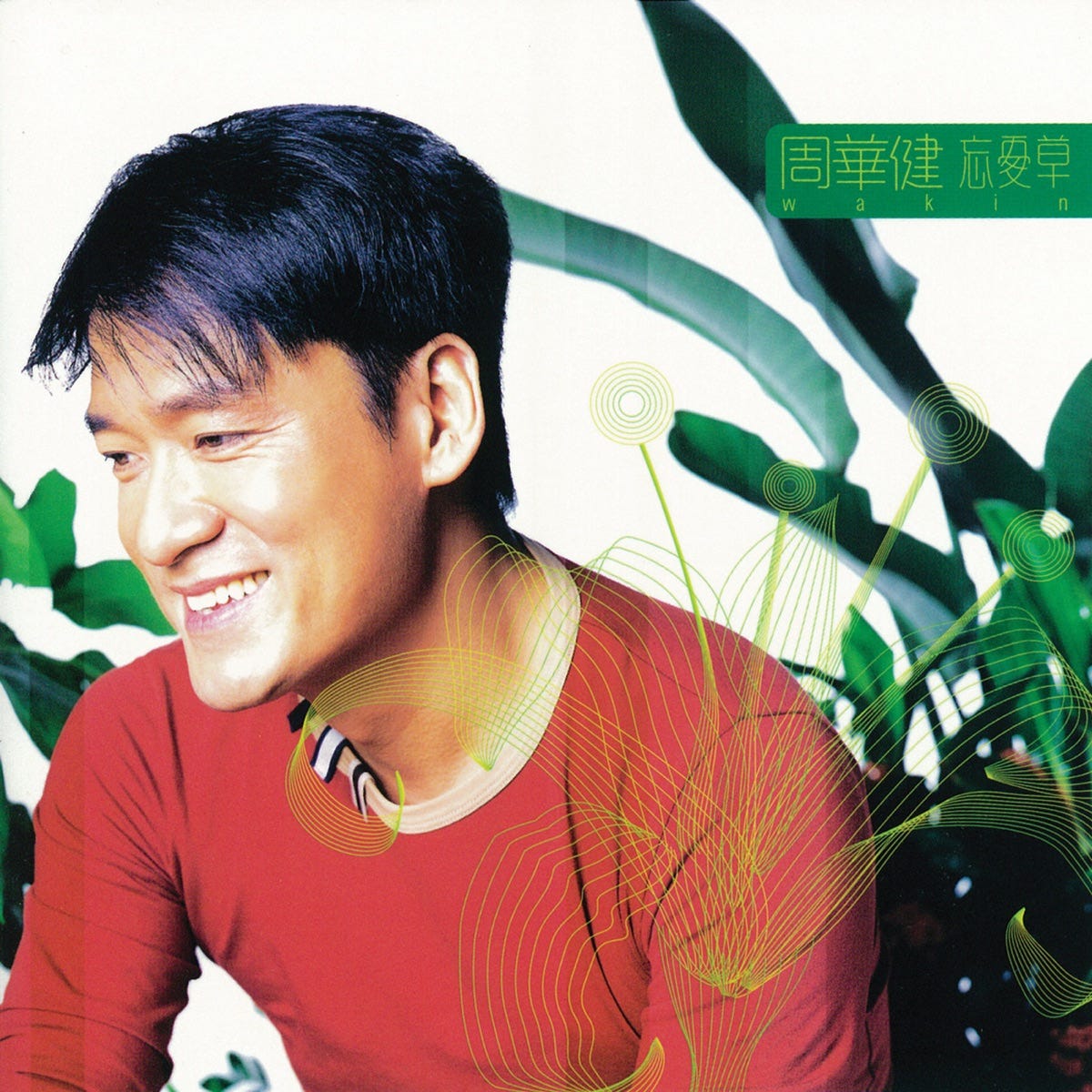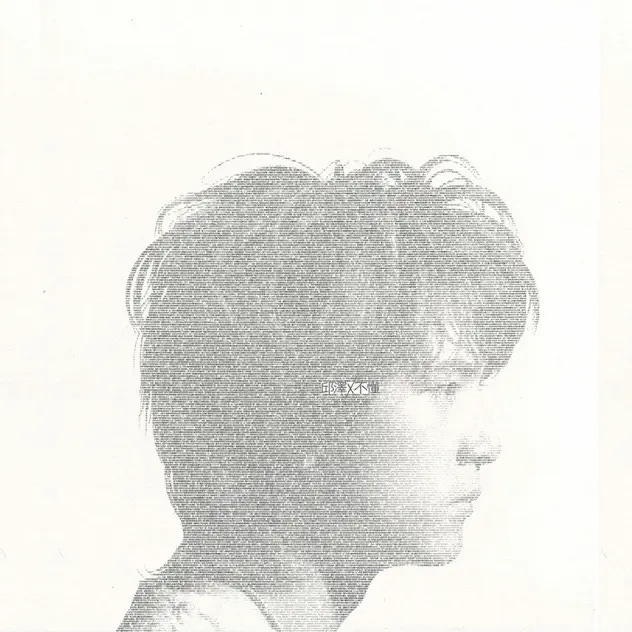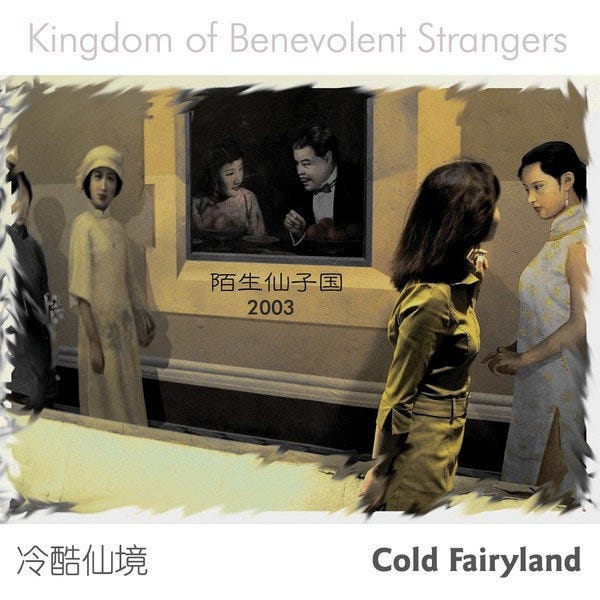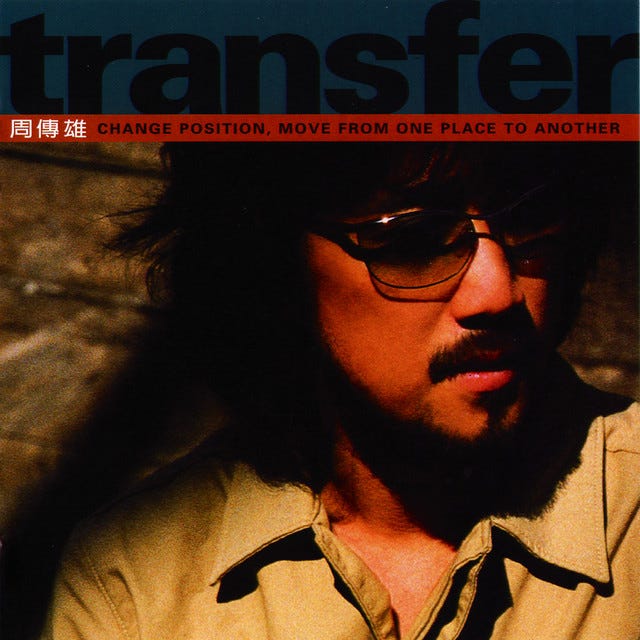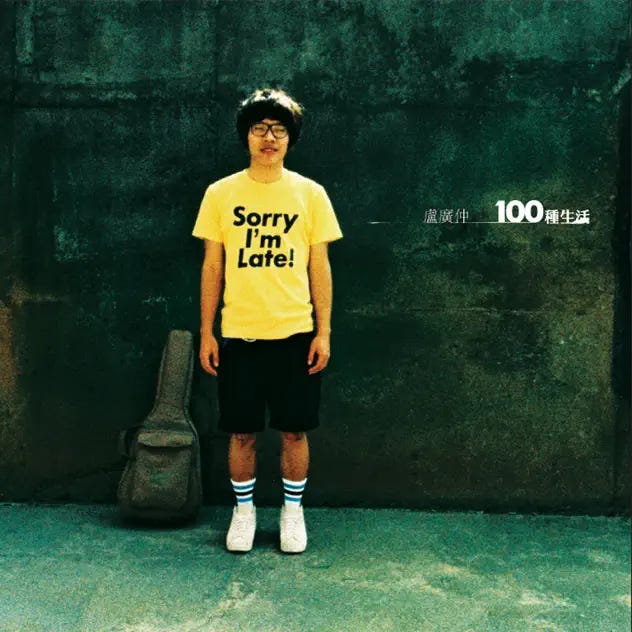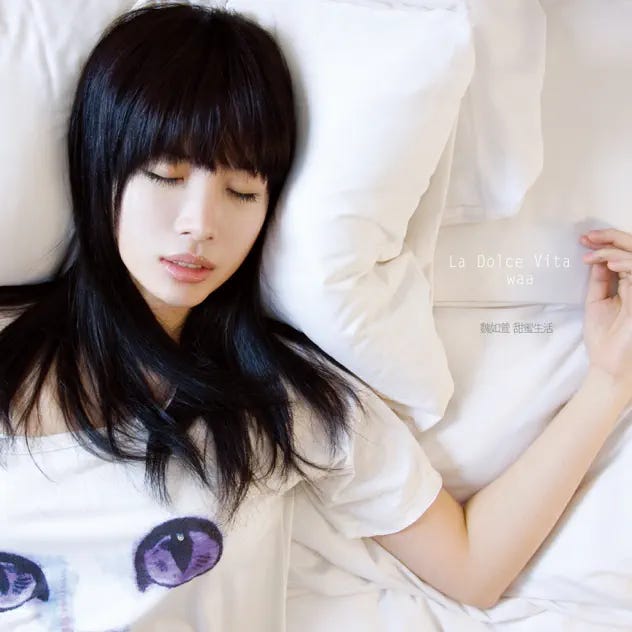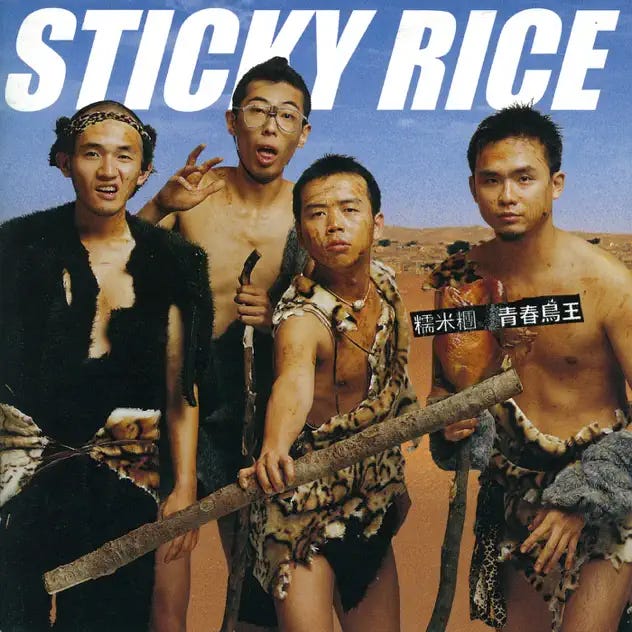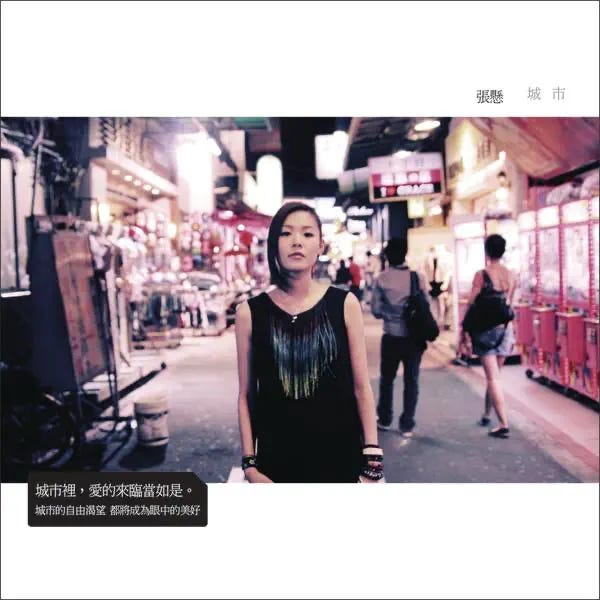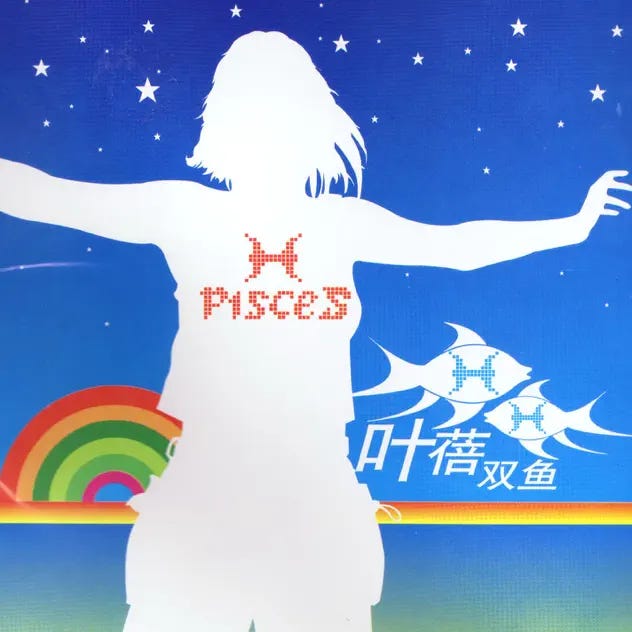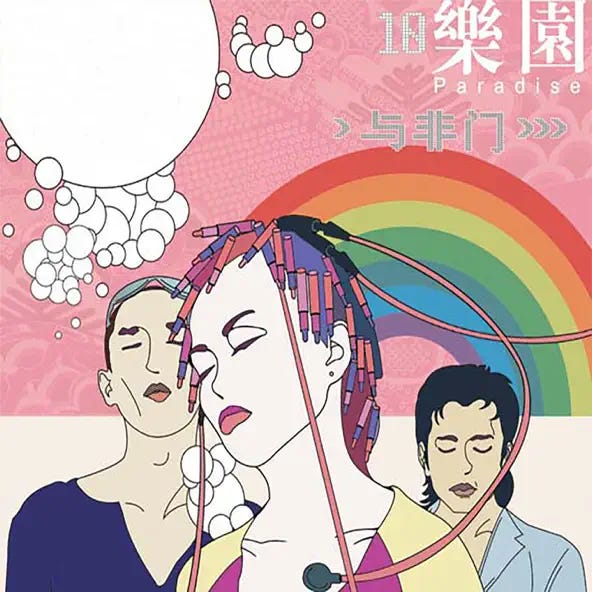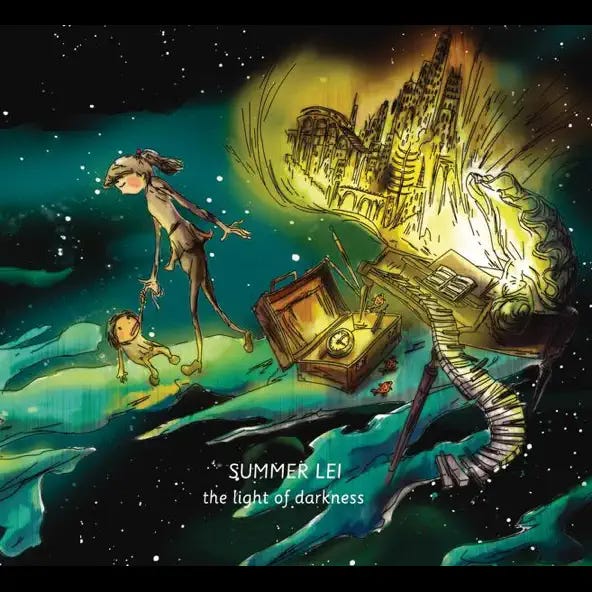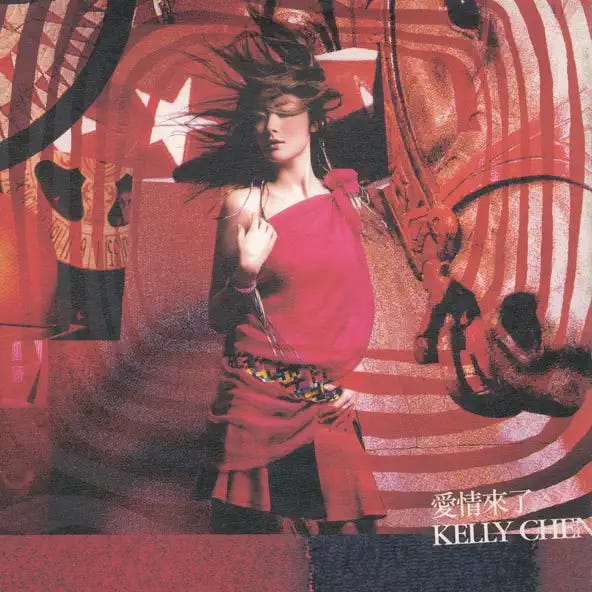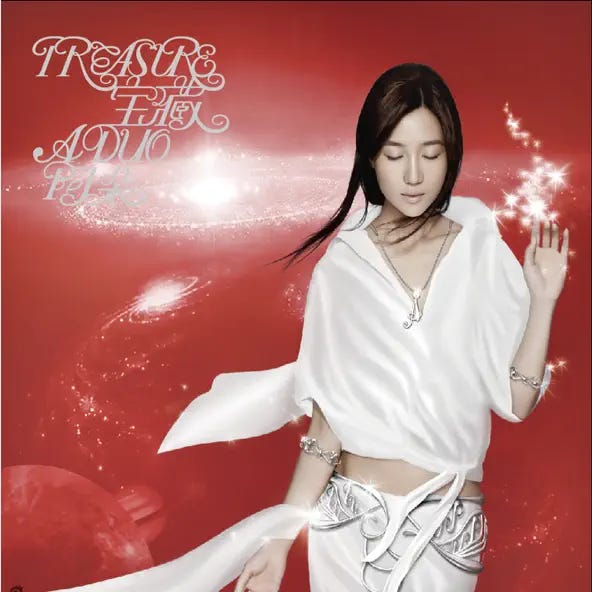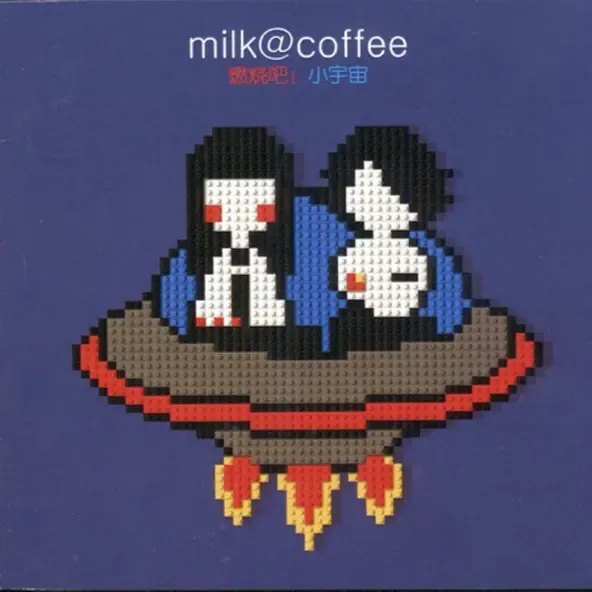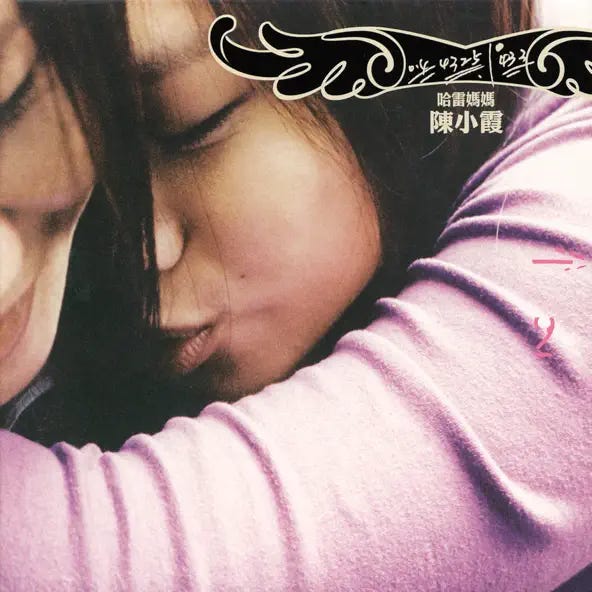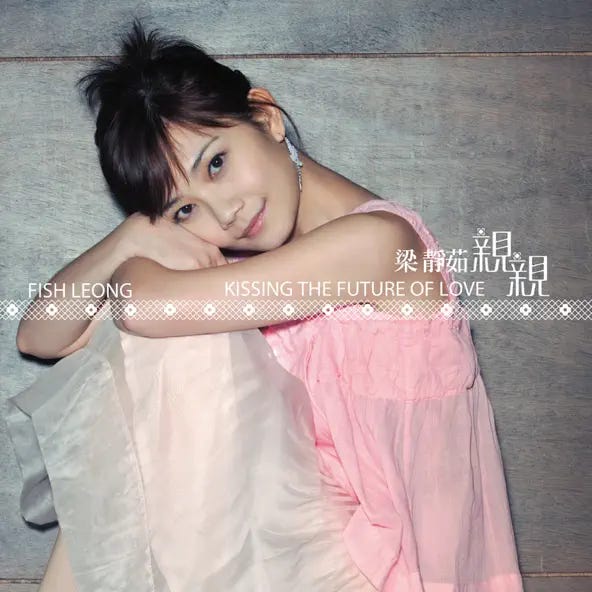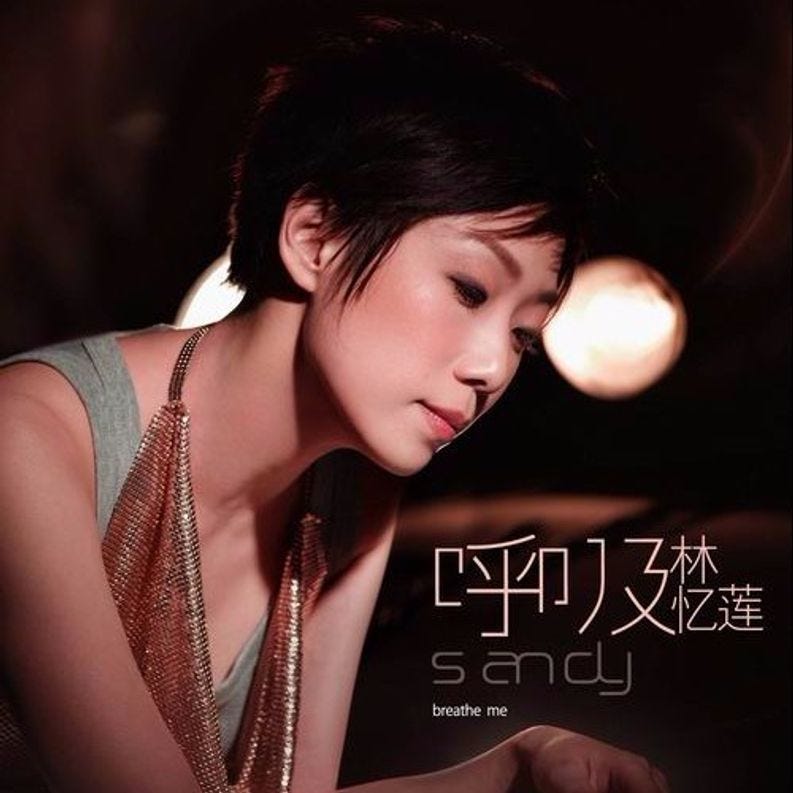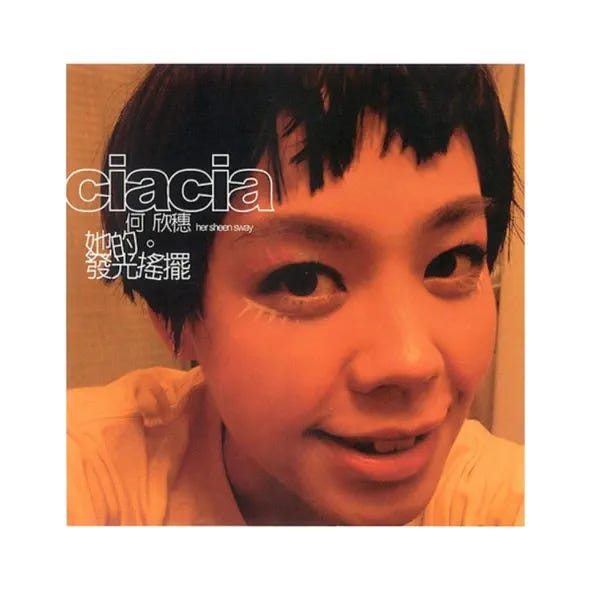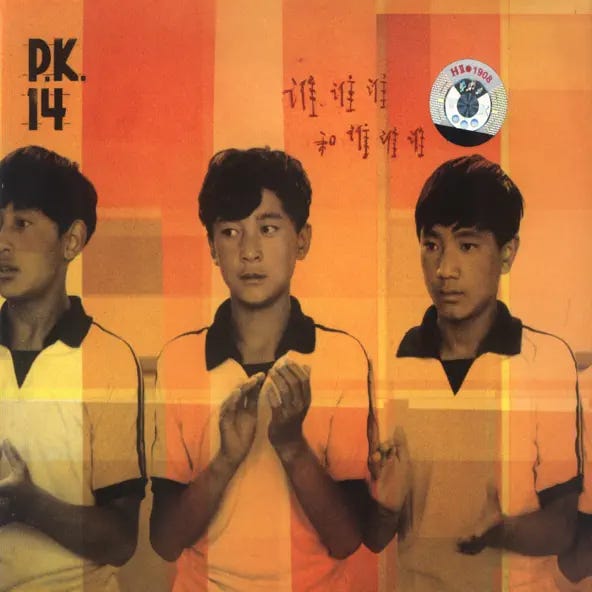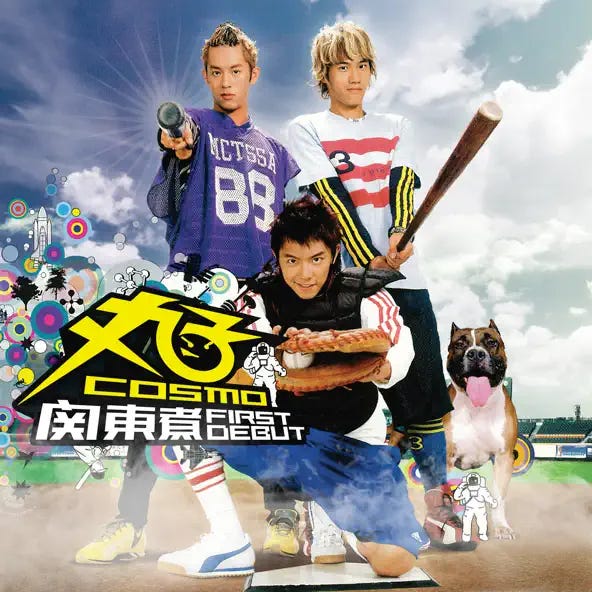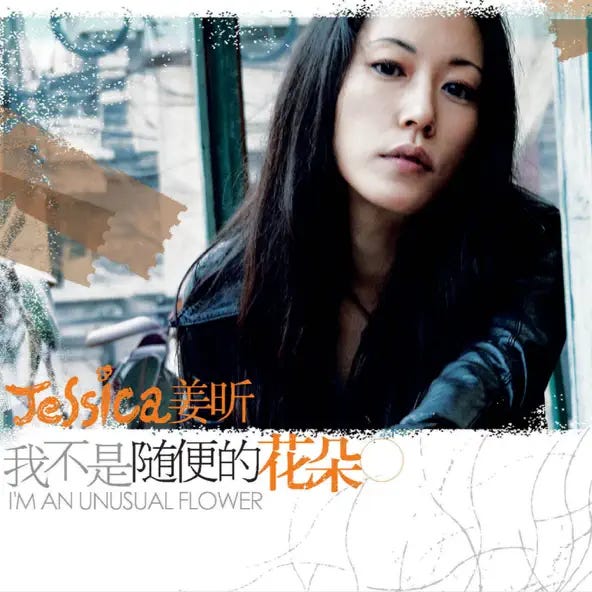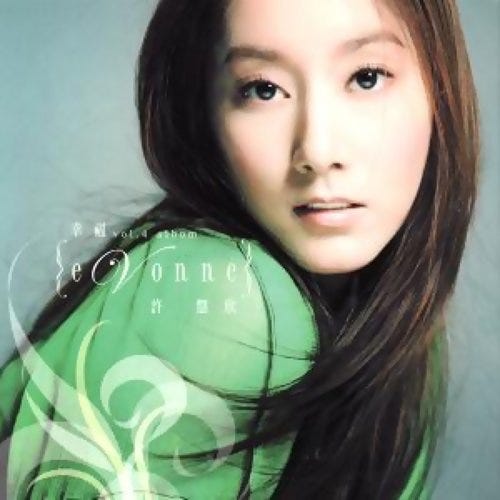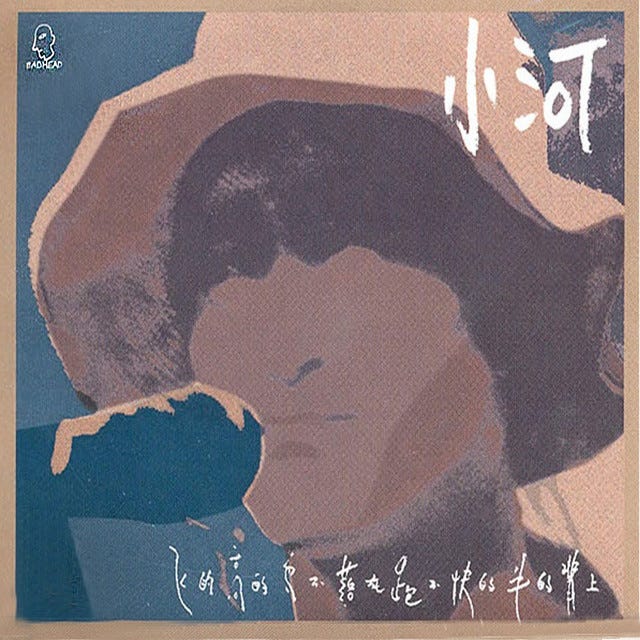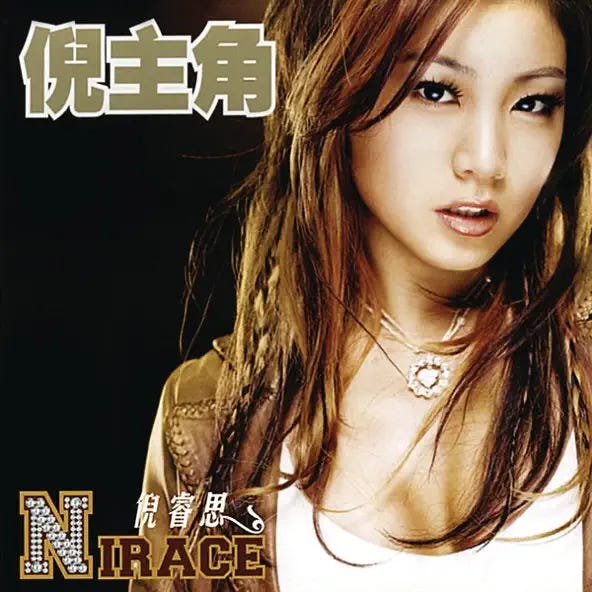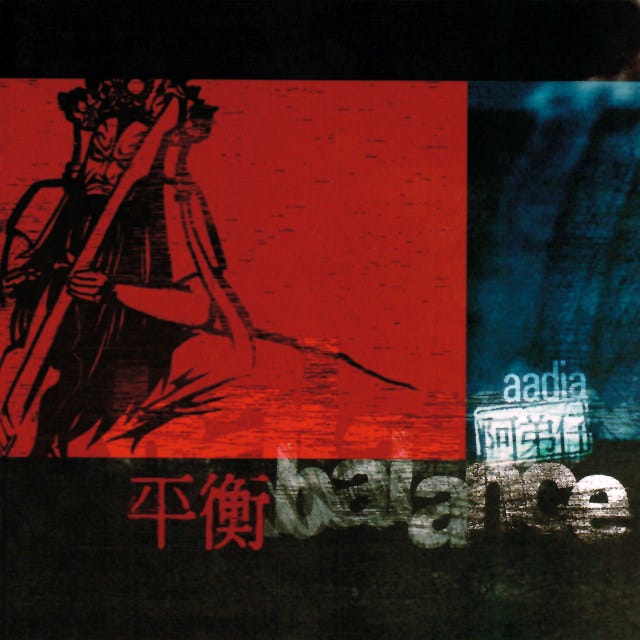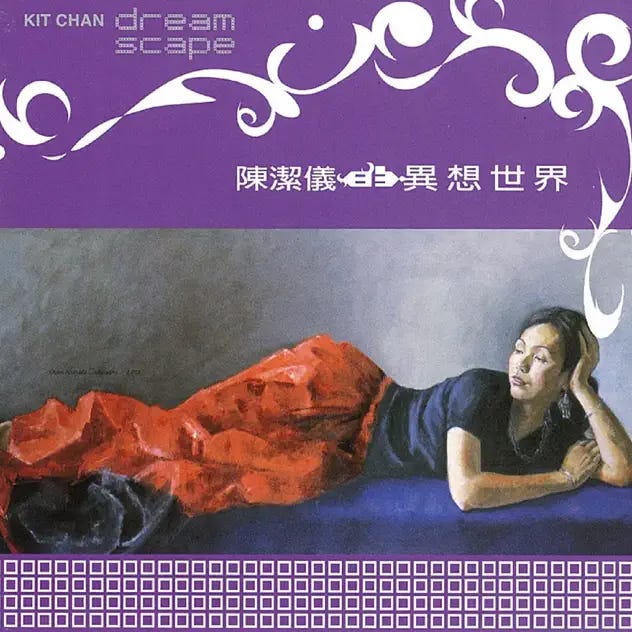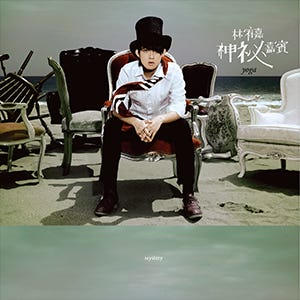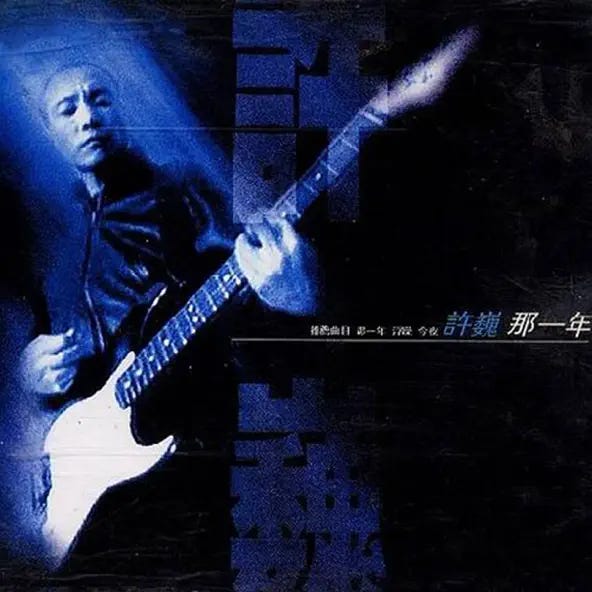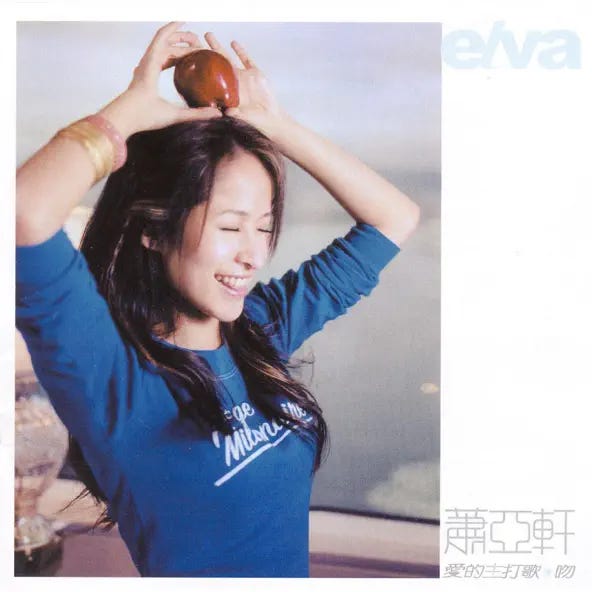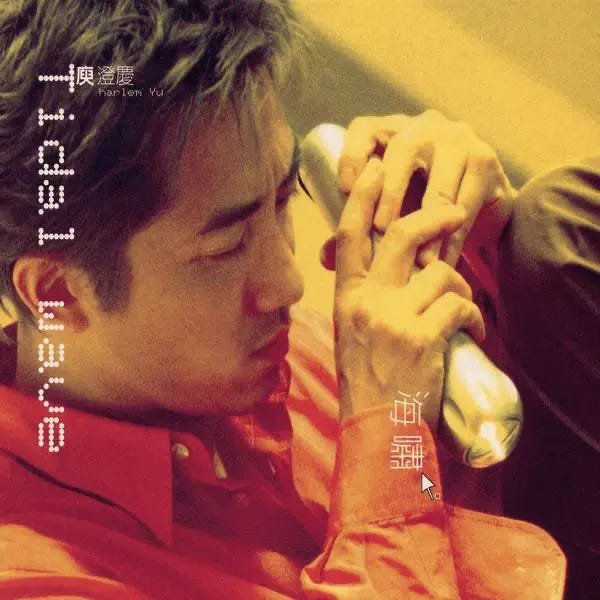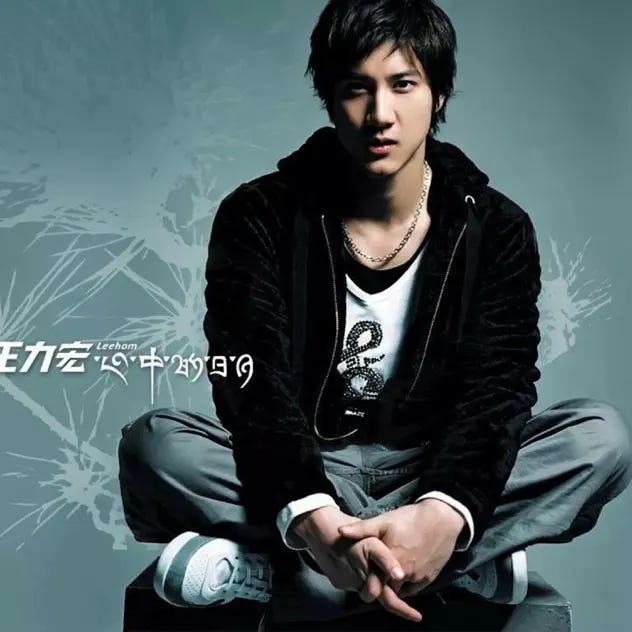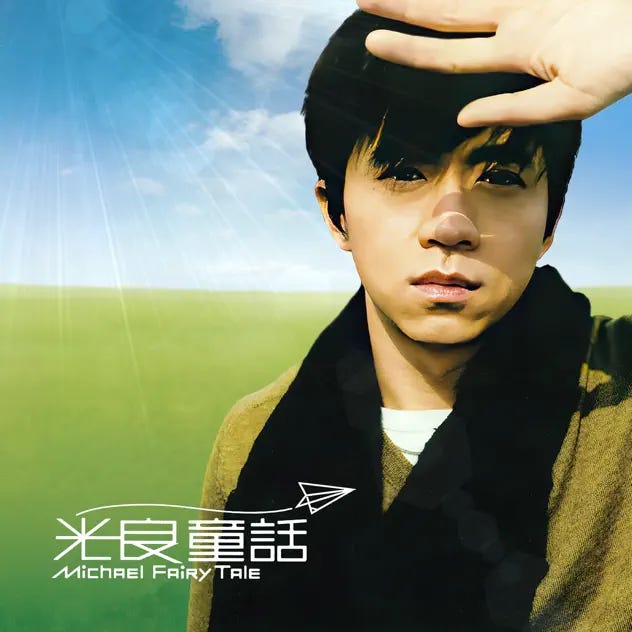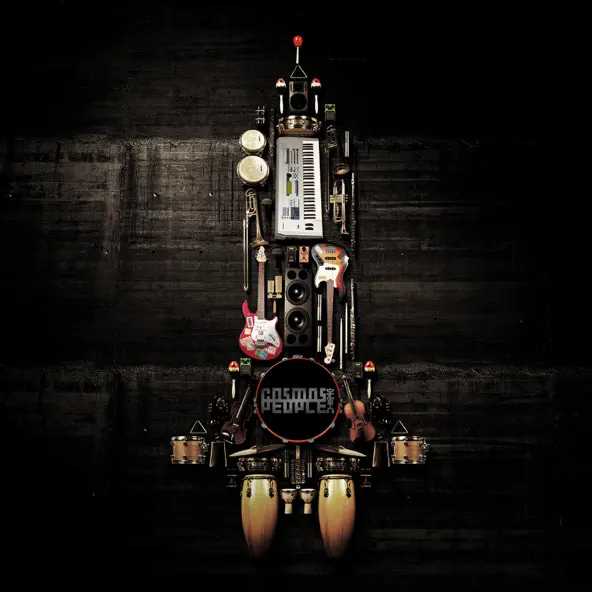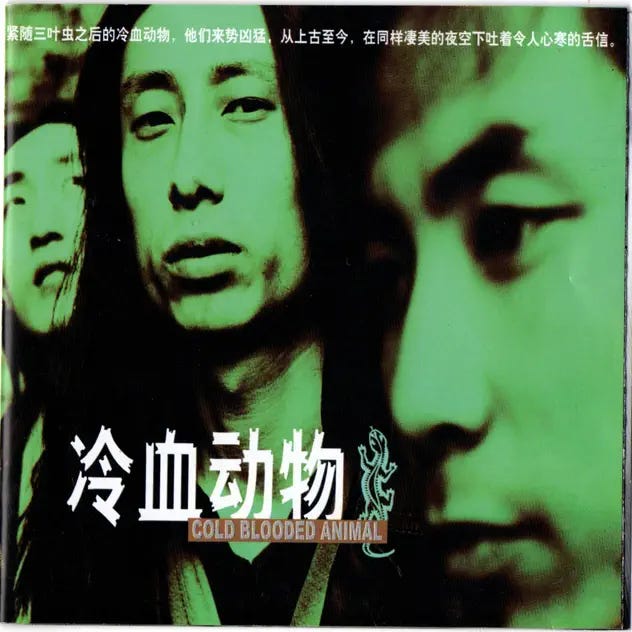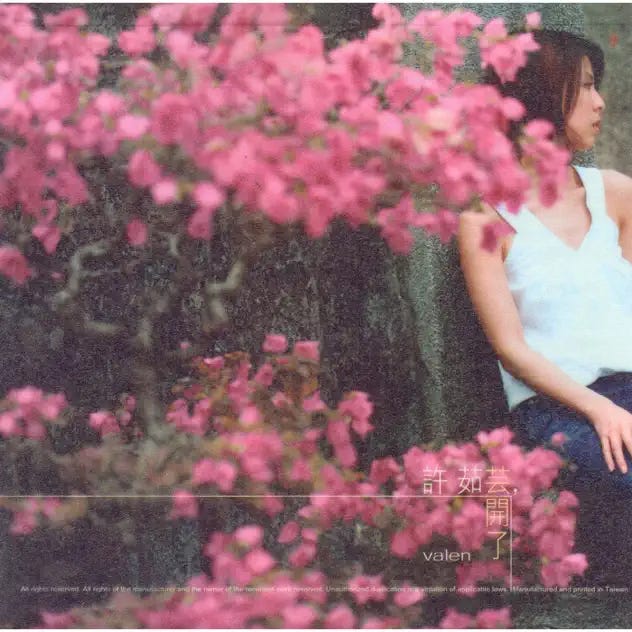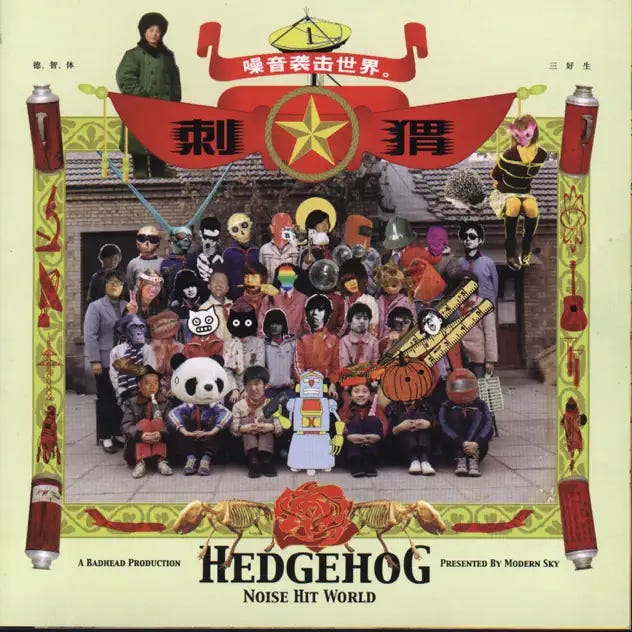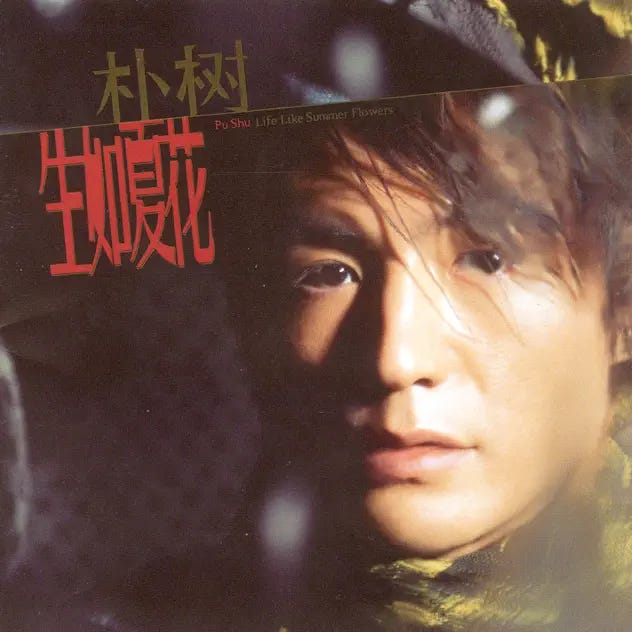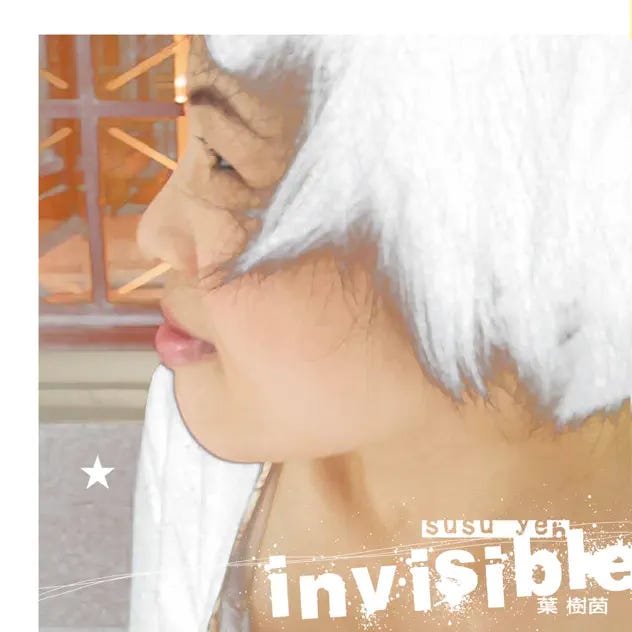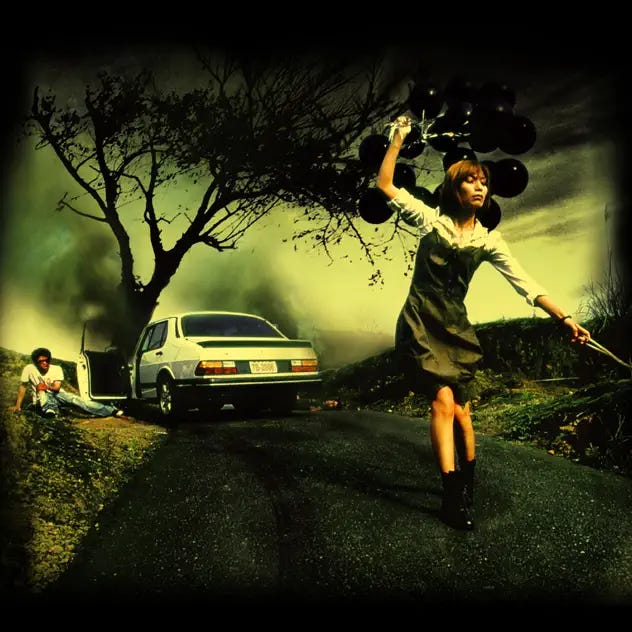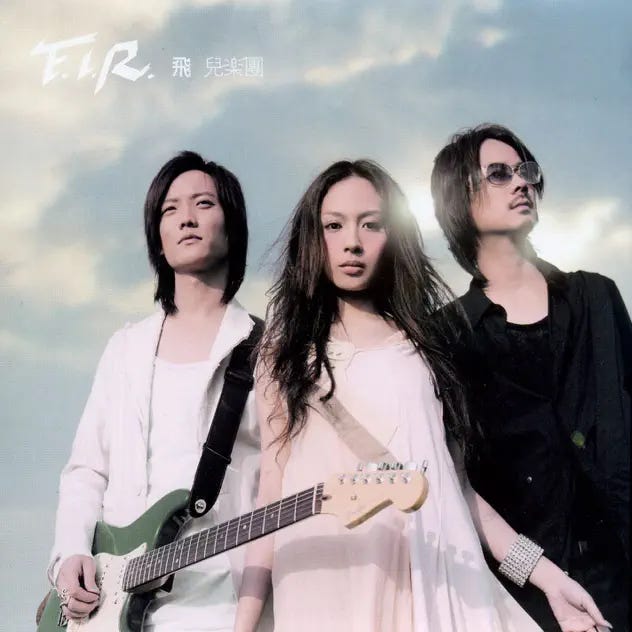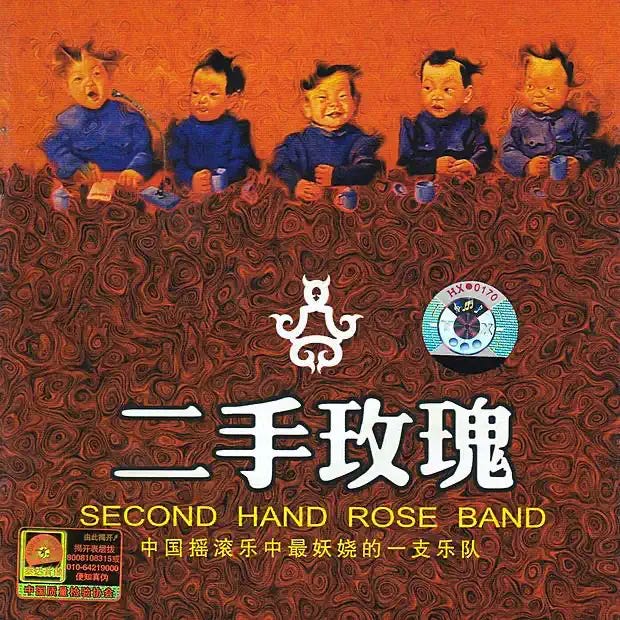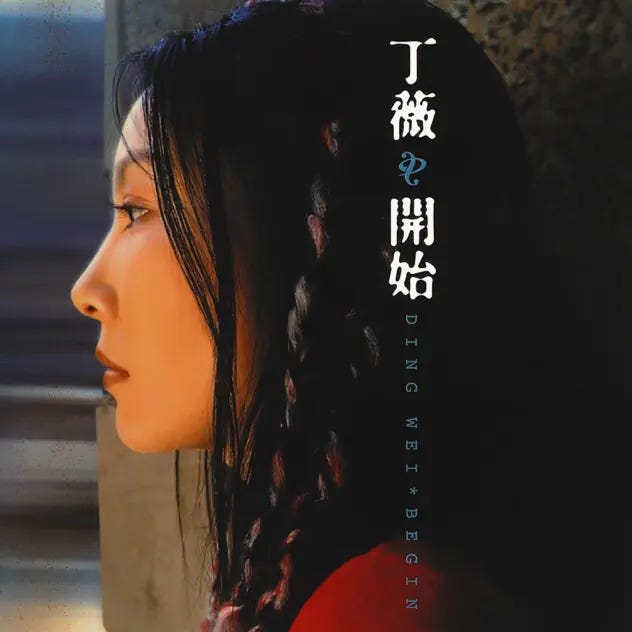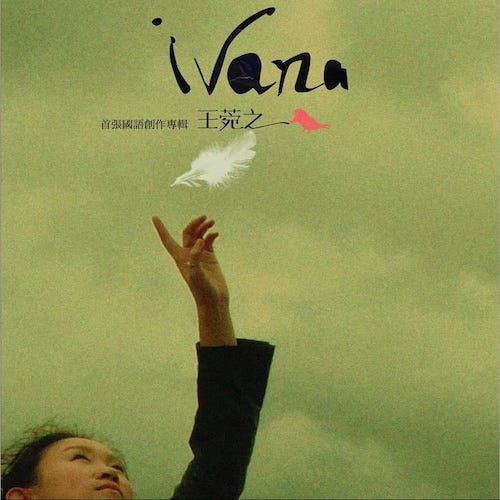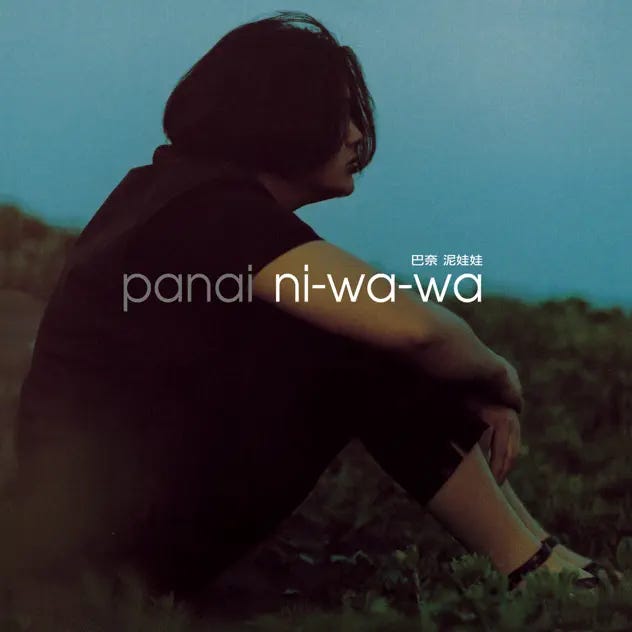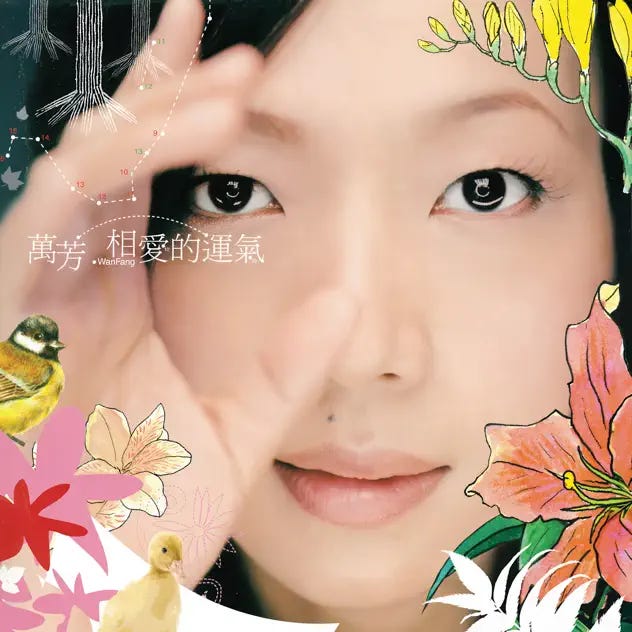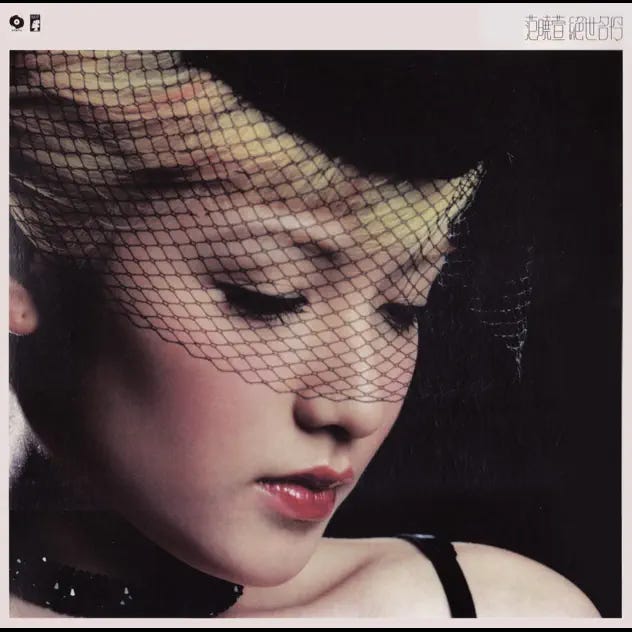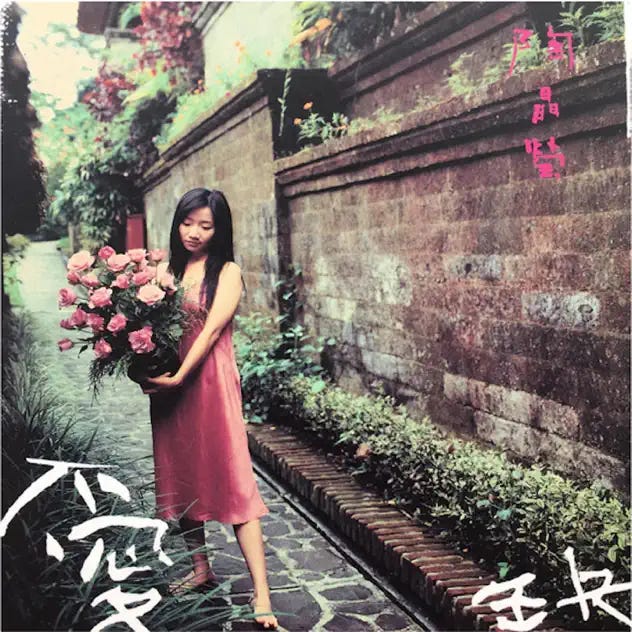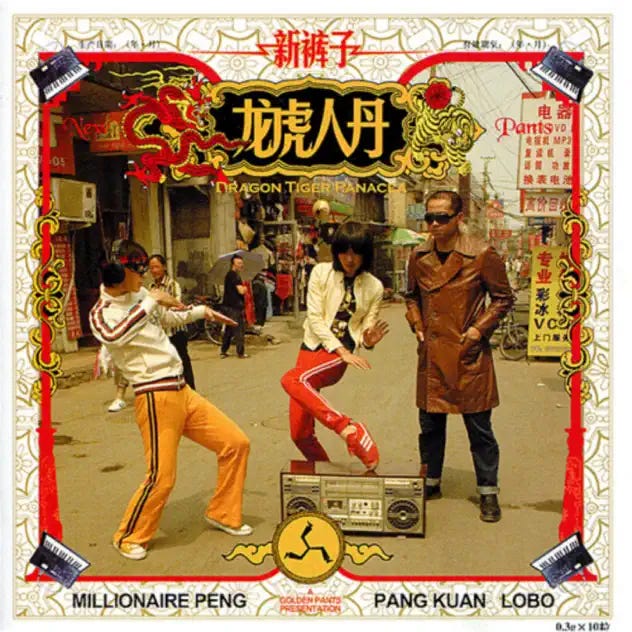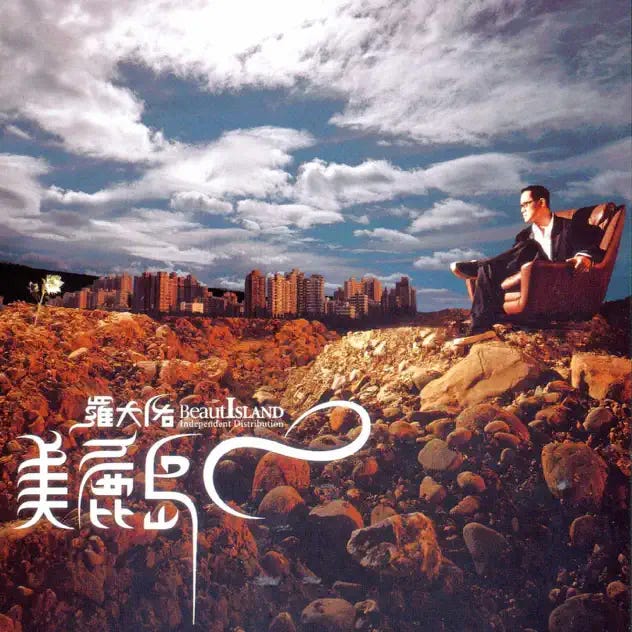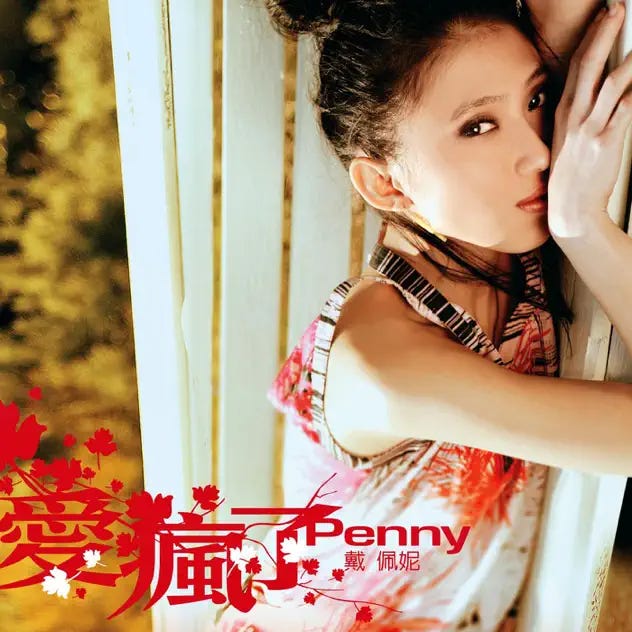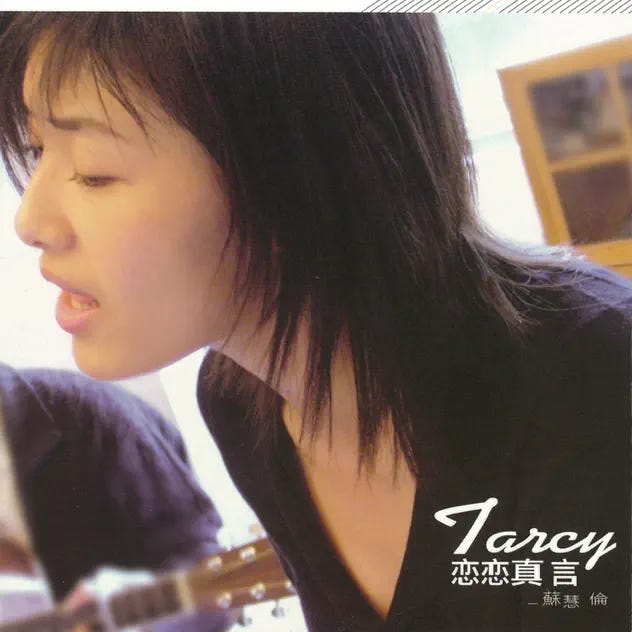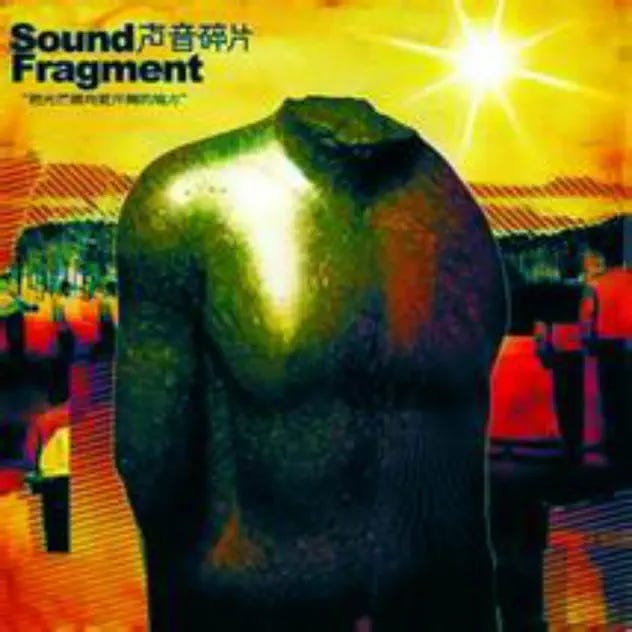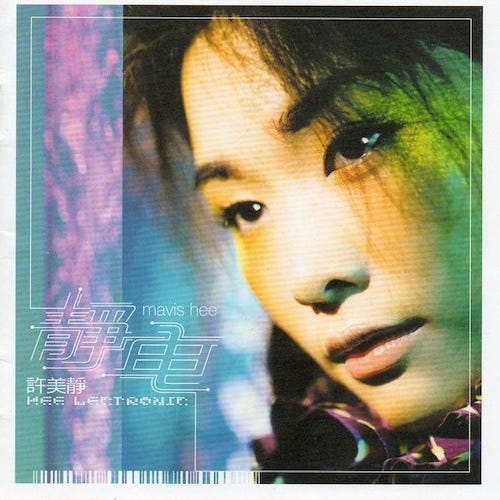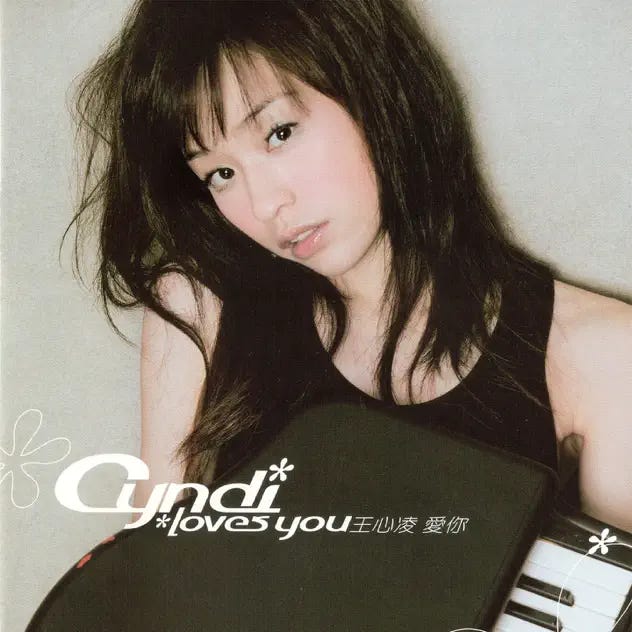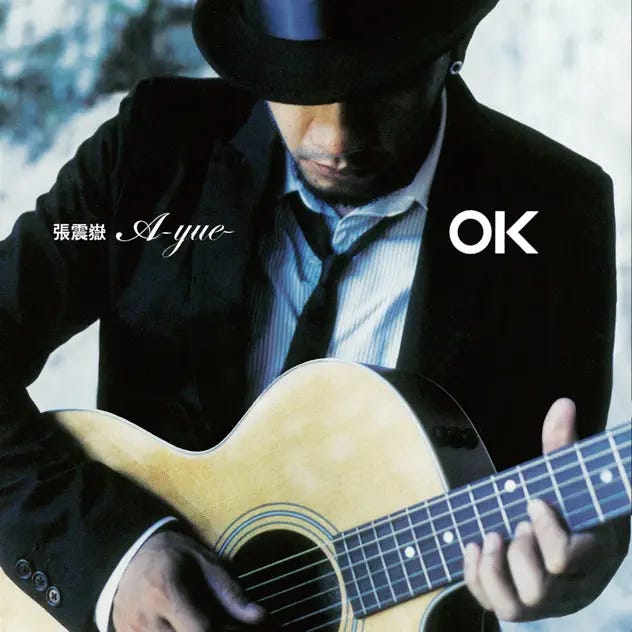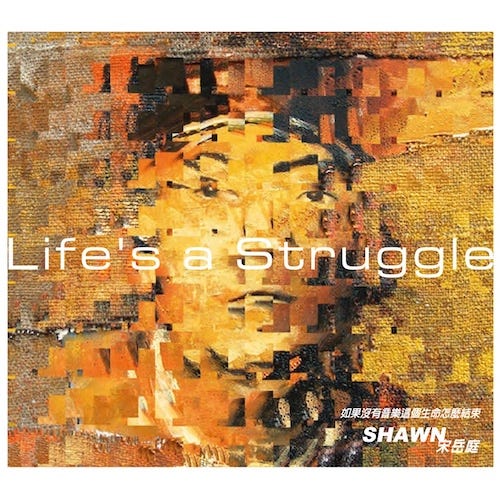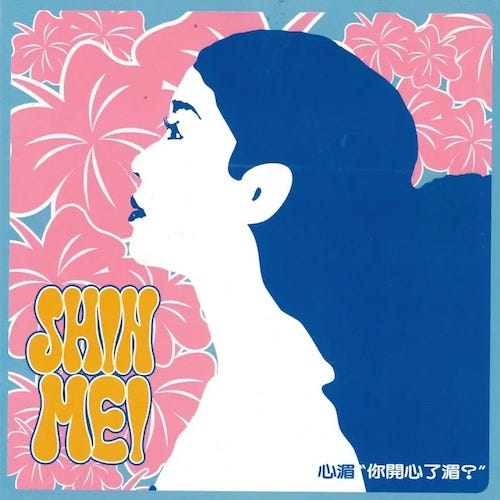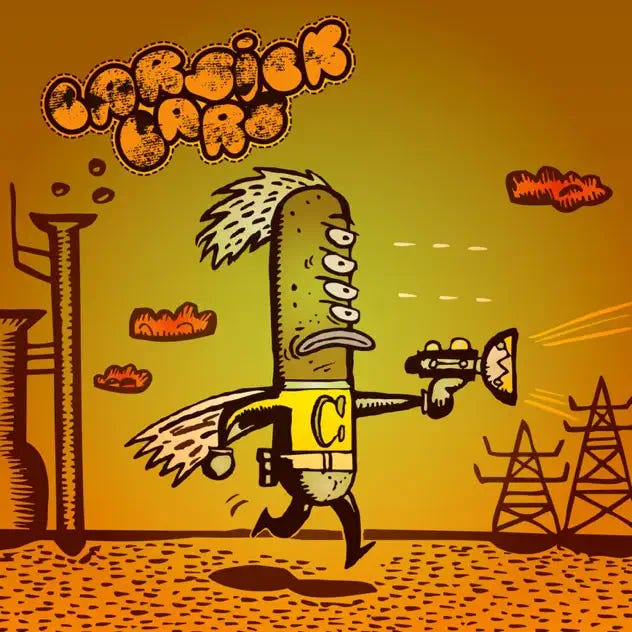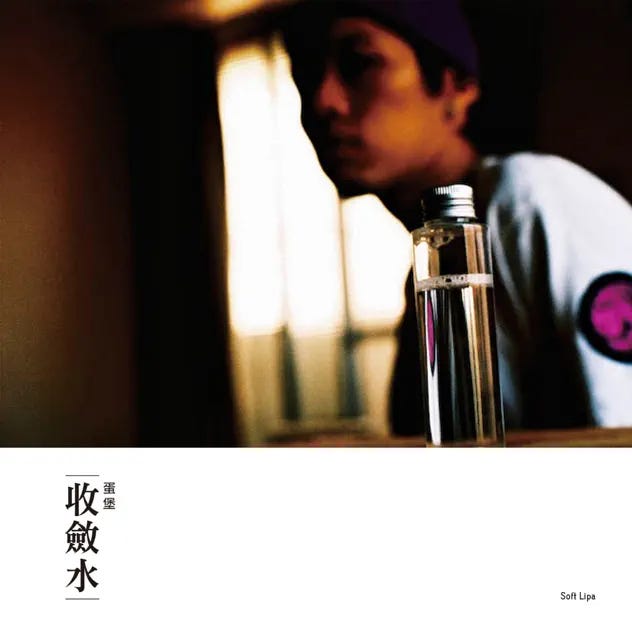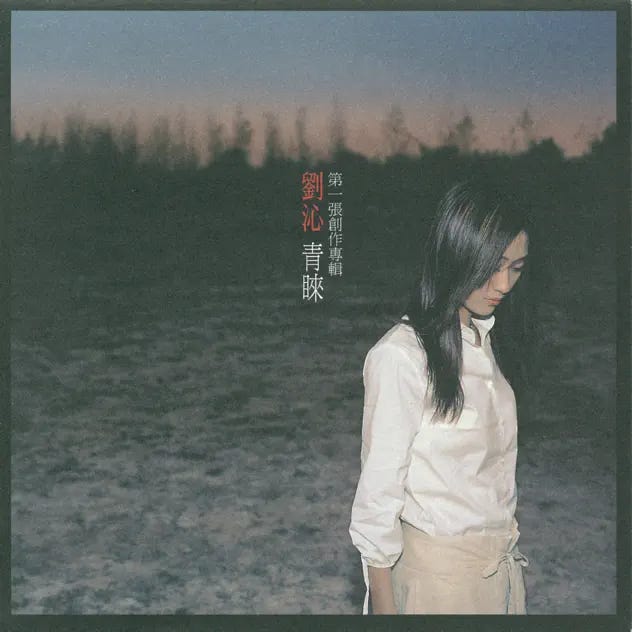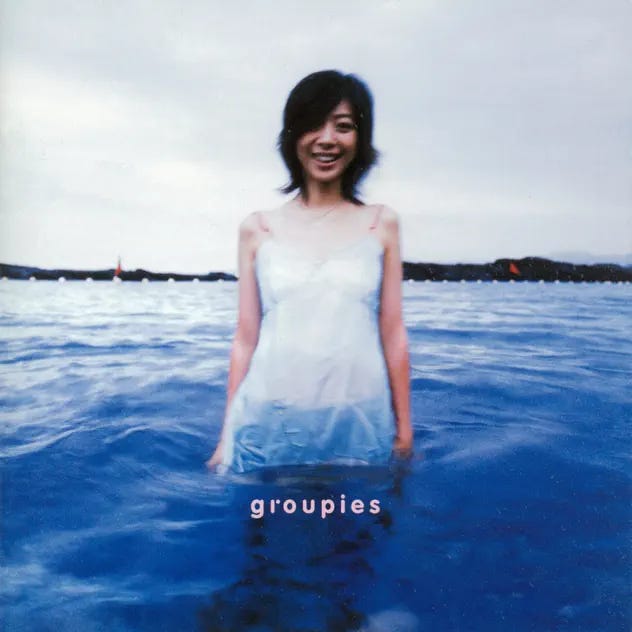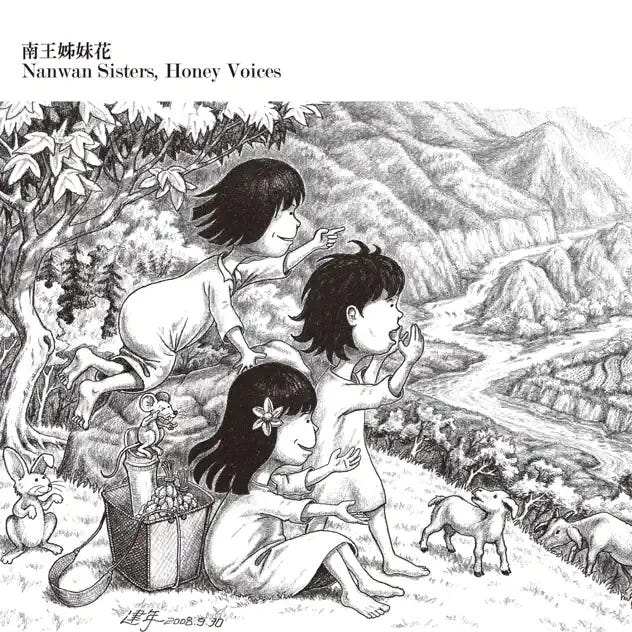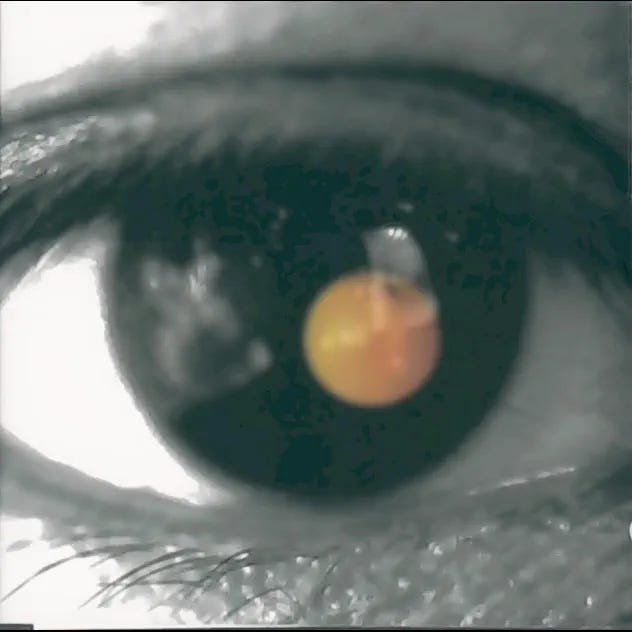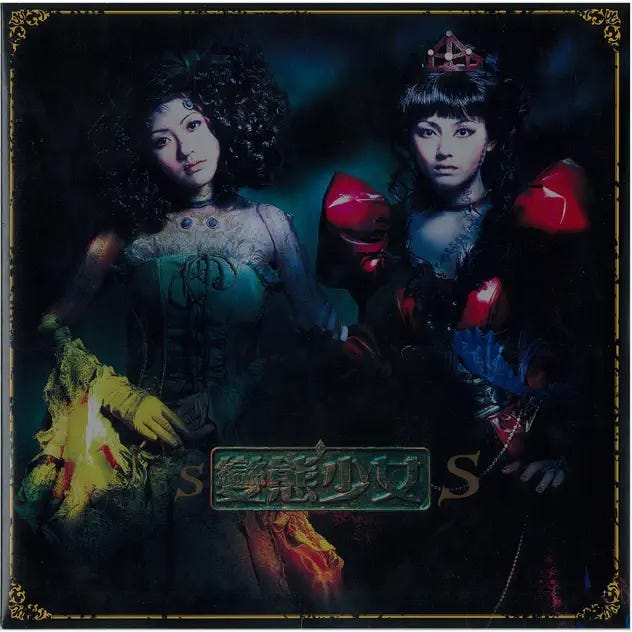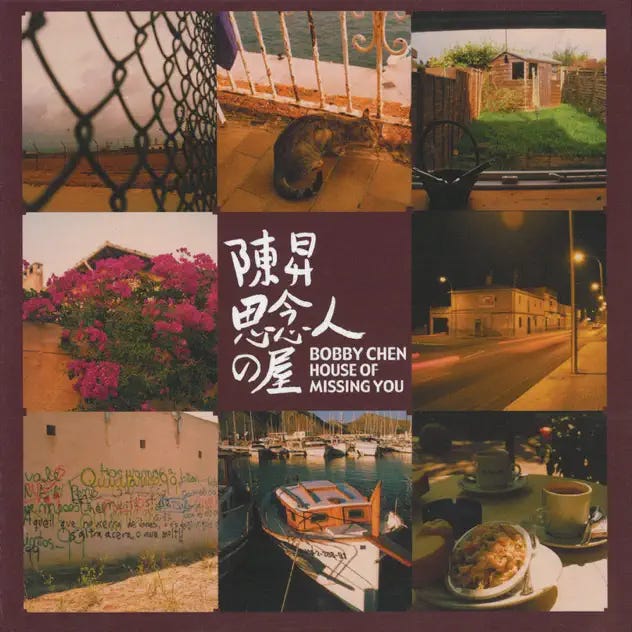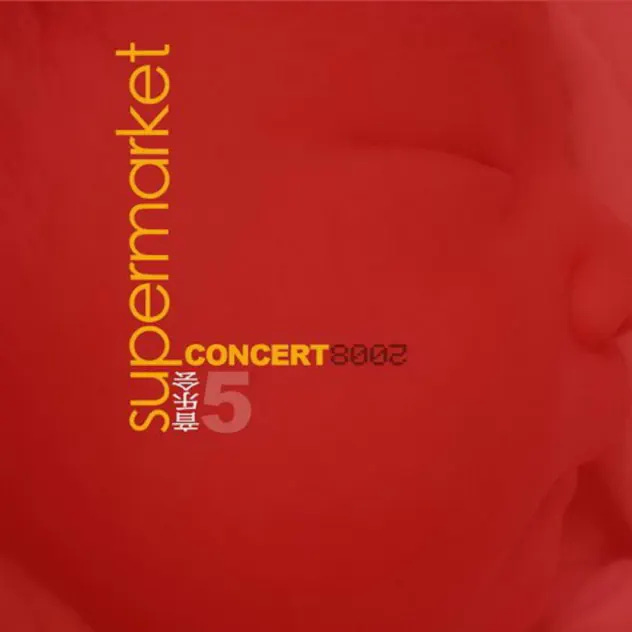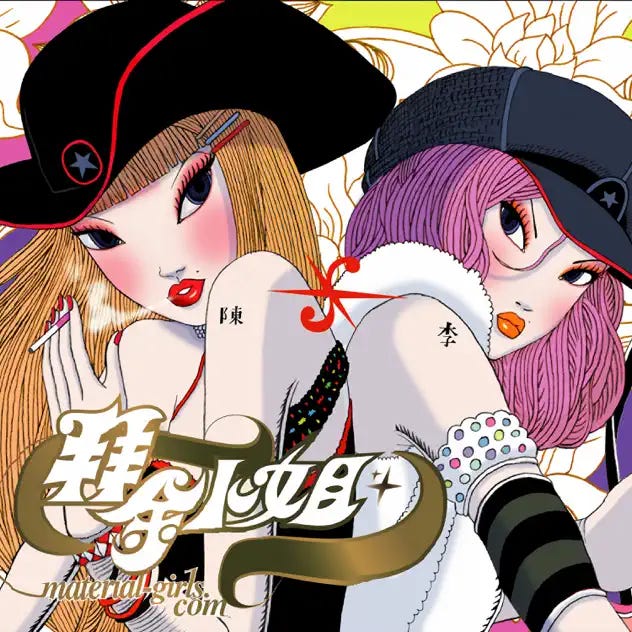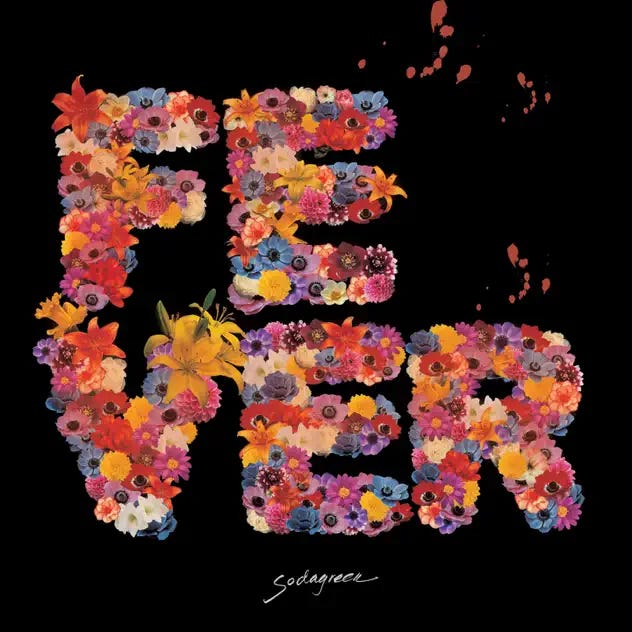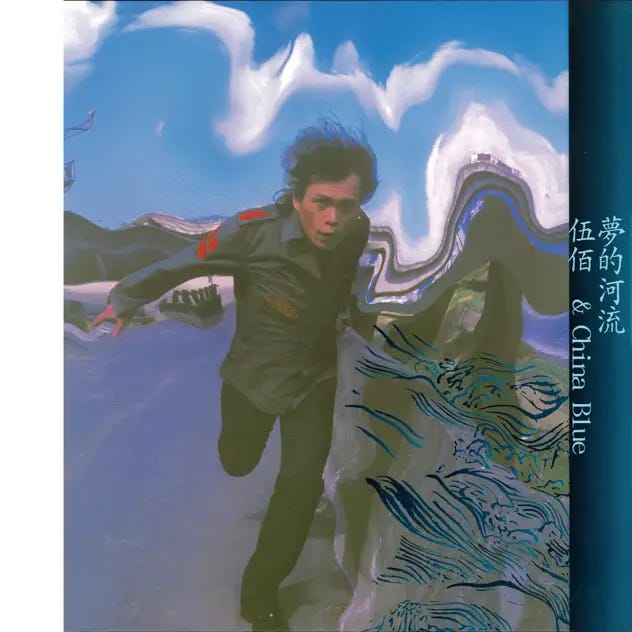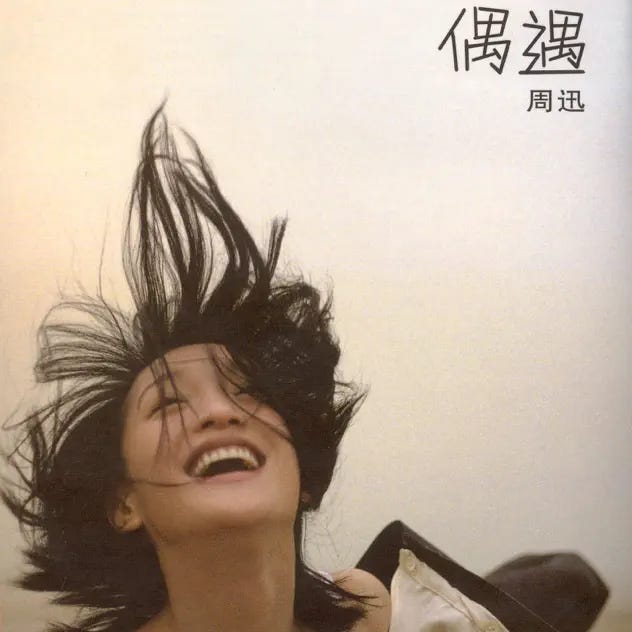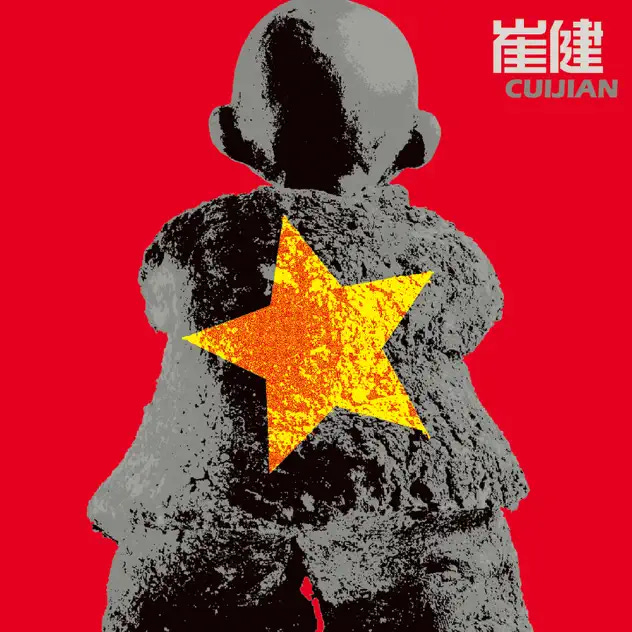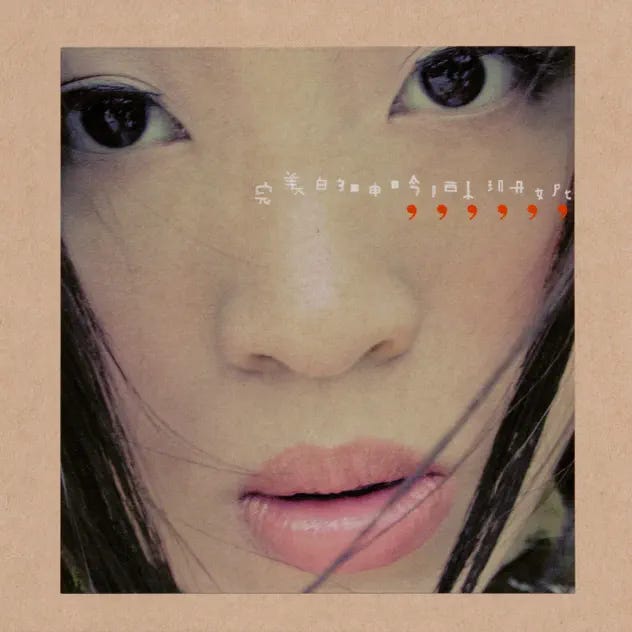The Top 100 Mandopop Albums of the '00s
the best albums of the decades, including breezy singer-songwriter material, blustering post-punk, and Chinese-informed soul
2000 might just have been the greatest year ever for Mandopop. It signalled changes for industries Taiwanese and Chinese alike though in different ways. Taiwan would establish their version of the pop star, the Jay Chou’s and the Jolin Tsai’s: dance-pop for the girls, urban influences for the boys, and ballads for both. And throughout the decade, Taiwan’s indie scene would develop, starting with twee indie pop before moving into band sound and drawing in electronic influences. China’s largely undeveloped pop scene was supplemented by a burgeoning rock industry and as government restrictions lifted in the early ‘00s, rock and pop would both flourish—the development of pop stars and indie rock luminaries alike would fill the hole left as Na Ying and Faye Wong retired in the early ‘00s. There are loads and loads of great albums from this decade—here are a hundred of them.
If you were to count this as an issue, it would’ve been numbered fifty (pretend this one gets a number and the other list issues don’t). Fifty issues feels strange, but here’s a little something special for everyone reading: a starting point to one of the greatest, if not the greatest, decades in Mandopop. Link to usual streaming services provided below, but for some albums which aren’t on streaming, links to a download (the quality of these isn’t the greatest, I get them from rips off the Internet). Thanks for reading as always.
Find a playlist with highlights on Spotify and Youtube, or check out the text list here.
100. Yuki Hsu - Love [2000]
As South Korea ushered in its first generation of K-pop, Taiwanese producers quickly took to its sound, shifting the Mandopop market. The same Eurodance and R&B influences are apparent throughout Love. Most indisputable are the Jinusean cover, which features the Korean hip-hop duo, and “Vow,” a remake of Roo’Ra’s “Prayer (Good),” where Yuki Hsu turns the group’s lament for lost love into a merciless statement of liberation: “I’ll be in pain, I’ll cry, but I won’t admit defeat / I’m vain and selfish, but I don’t care.” Hsu’s rendition favours four-on-the-floor beat over flamenco guitar, dulling the original’s genre blending yet retaining its sense of newness. Love wasn’t just her “most mature record yet,” a singer smart enough to see beyond those purer notions of romance, but also an attempt at melting K-pop’s touchstones into Mandopop’s pop star for the new millennium. On closer “Walking on Wave,” itself a cover of a 1979 classic, she works a hi-NRG beat beside traditional instrumentation. In gazing across the mountainous scenery, Hsu turns its lack of concern into release, the sound of which could only be described as Taiwanese.
Listen here: Apple Music // Spotify
99. Zhang Qianqian - 灵魂出窍 [2001]
After a chance encounter with a producer, Guangzhou-born model and oil painter Zhang Qianqian was in studio improvising lyrics for “罐头” (“Cans”), her dreary first single where she wailed about rot and decay. She plays set designer on her debut album, 灵魂出窍 (Out of Body Experience), crafting minimalistic, alien soundscapes that pit her spectral voice against frigid melodies and eerie drum machines. Though the willful musician is slow to construct its ghostly mansion, the album’s climax lies in swift decimation. Tenuous drone turns to hair-raising moan and metallic jangle to ruinous noise. For Zhang, the body is nothing more than a quick to disintegrate vessel.
Listen here: Apple Music // Spotify
98. The 13 Band - 你是王嗎? [2006]
The 13 Band might have been left as another one of Taiwan’s unsuccessful college ensembles after their first album underperformed and they were dropped from Universal Music but half a decade later, a new lineup and new sound earned them the admiration of mainstream and alternative scenes alike. Influenced by Oasis and Blur, brothers Xiao Bao and Xiao Yu offered a cleaner take on the Britpop sound for 你是王嗎?(Are You King?) in dazzling guitar work, galloping drum rhythms, and anthemic hooks. Despite backgrounds in classical art, the band’s lyrics can feel crude. “Crazy love radiantly blooms above the rainbow / and becomes a sun that fills the sky,” sings Xiao Bao, like he’s describing a small child’s artwork. Primed with bright riffs, it inspires as much optimism as the next illustration stuck on your fridge.
Listen here: Apple Music // Spotify
97. Will Pan - 玩酷 [2007]
Will Pan has to know he’s a little uncool. On “Tell Me,” he rapped, “what should I do? I only know how to act cool,” seconds after dropping the fumble of a line, “girl friend, you better know you fly.” 玩酷 (Play Cool) is the first to get ahead of the Taiwanese-American’s self-confident image. The title track switches between swaggering dance beat and nu-metal guitars, all for him to say that “cool is in the attitude.” Pan might have been Jay Chou’s most direct acolyte. It’s something he showcases on 玩酷 by fully adopting the artist’s genre-fluid style, clearest on the fluttering “白日夢” (“Daydream”) as he boasts over traditional strings and a smooth beat. Yet when it comes to love, Pan is still something of a dork: “do you still love me?” he stammers. Sometimes you gotta drop the front to get the girl.
Listen here: Apple Music // Spotify
96. Shunza - My Friend Betty Su [2003]
Though My Friend Betty Su’s neighbourly title track is about catching up at your local establishment with an old friend, it’s a bait-and-switch from Shunza. Her seventh album falls back into the same trappings as most Taiwanese pop albums: though varied in style, it’s littered with ballads, and wholly concerned with romance. Sure “Ask Oneself” is about changing, but it’s also about an ex-boyfriend. The album might not have the cool appeal of the Chinese-American singer’s neo-soul or trip-hop-inspired records, but it keeps things interesting with smart jazz influences, like on her cover of Norah Jones’ “Don’t Know Why,” and flirty disco skates like “If You Want My Love.” Tied together by Shunza’s velvety voice, every come-on, lament, and coffee chat feels like the most welcome exchange.
Listen here: Apple Music // Spotify
95. Nicky Lee - 影子 [2005]
Before going on to form Solid, the Korean-American trio were involved in crafting the sound of L.A. Boyz. Both groups proved pioneering: L.A. Boyz’s mixed their upbeat and danceable boy group nonsense with some hip-hop flair to introduce Taiwan to rap, while Solid popularized R&B in South Korea. As Solid went on hiatus, songwriter and producer Jae Chong began writing R&B-inflected gems for pop stars like CoCo Lee and Elva Hsiao that proved influential to Mandopop. The Taiwanese-American trio’s own hiatus would bring Chong deeper into Taiwan’s music scene, joining L.A. Boyz member Jeffrey Huang in establishing the more serious hip-hop collective Machi.
Also on Machi’s eclectic roster was Nicky Lee, a Korean-American hopeful who had previously debuted in the ultimately short-lived K-pop group Voice before releasing a solo Korean album that failed to garner much attention. Machi’s success offered the singer a second chance, his Mandarin debut an introduction for a new audience. 影子 (Shadow) also played like a culmination of Chong’s contribution to Taiwan’s pop scene to date. Splashy numbers like “無價快樂” (“Priceless Happiness”) are ripe for summer bliss, while his ballads, arranged simple and clean, afford focus to the slight scratch in Lee’s otherwise buttery voice. With the honey sweet taste of infatuation and a growing nostalgic feel, Chong boils R&B down to its most uncomplicated.
Listen here: Apple Music // Spotify
94. Wakin Chau - Day Lilies [2001]
Maybe no pop star played it as approachable as Hong Kong-born Wakin Chau. Self-assured and charming, his voice is rough and masculine, yet filled with warmth. Like much of Day Lilies, “Any Song Reminds Me of You?” was labelled as “for his fans.” Referencing past hits, he uses his career to draw a nostalgic timeline, but even for newer listeners, the lighthearted guitar strum proves joyous, a welcome staging for his affable voice. If that one’s Chau singing to you, then the title track is him singing with you. Originating from a Japanese folk song, it starts with nothing but a sparse piano accompaniment before building to a bar singalong. And most moving is “I’ll Get a Headache,” where the singer admits to being just as weak as the next man, just as fallible to the same follies—not that any listener would ever believe him.
Listen here: Apple Music // Spotify
93. Roy Chiu - 不懂 [2003]
What twenty-something man doesn’t dream of being a rockstar? Roy Chiu was sick of his old image, a teen idol swamped with commercial shoots and drama gigs, his first album saddled with gooey ballads about how love could be, oh so, delicate. But in interview, the entertainer was a true charmer, discussing death at length and telling all about his dream of quietly retiring with fifty million and a cozy coffeeshop. The ballads on his second album, 不懂 (Don’t Understand) are detached and rougher, with jagged guitar strums and cool attitude, but Chiu is best when he goes unconventional. Progressing to semi-hardcore territory on the album’s opener, he bluntly groans, “the world is troublesome and full of dog shit.” Why the hell not? Chiu never agreed on being anyone’s idol.
Listen here: Apple Music
92. Cold Fairyland - Kingdom of Benevolent Strangers [2003]
Initially, Cold Fairyland emerged as the collaboration between multi-instrumentalist Lin Di and bassist Su Yong, their demos packaged into an album and unexpectedly gaining label attention. Following, the duo collected more members and influences to release what Lin refers to as the first real Cold Fairyland release, Kingdom of Benevolent Strangers. Based in Shanghai, the band were independent of the Beijing rock scene and far removed from the contemporary grunge sound. An elegant dream pop marvel, Lin’s pipa compositions twist with classical piano and strings underneath arrangements informed by artists like Faye Wong, Dou Wei, and Portishead, a contrast to their often macabre lyrics. On “DuDu! You Say,” Lin sings of life in confinement and without purpose, but heads towards the relief of its gorgeous music. “DuDu smashed the glass,” she hums, “DuDu disappeared into air / DuDu flew to a distant planet.” Where the choices presented were unsatisfying, the band created new options.
Listen here: Apple Music // Bandcamp // Spotify
91. Cao Fang - 哼一首歌,等日落 [2009]
Wanting a fresh start, Cao Fang did what anyone would do: she got in her car and she just drove. The destination didn’t matter—allegedly, she wrote “赛里木” (“Sayram Lake”) on some distant hill in front of a shepherd’s house—it was only important that the singer was moving, that she felt free. Later, she’d have an acoustic band make her folksy melodies sturdy. Equally important to her exploration of maturity on 哼一首歌,等日落 (Hum a Song, Wait for Sunset) is searching for things to bid goodbye amidst the noise: her twenties but not her youth; an old friend but not the letters; and the corners she passed but not the scent carried by the wind, not the melody hummed by two under the deep blue shade as the sun came up.
Listen here: mp3
90. Steve Chou - Transfer [2000]
Don’t let the beard fool you, Transfer is still much of the same from the Taiwanese singer: the same pristine arrangements, the same laments to sweet yesterdays, the same clean vocal takes. Yet it’s got the feel of a greatest hits album, with half of its tracklist made of songs Steve Chou had written for others including “Betray,” originally performed by Na Ying as this massive, soul-crushing event. Treated with less pop polish, Chou’s voice stretches to every corner of its miserable enclosure, its suffocating intensity made to feel close.
It had been three years since the singer’s last album and it’d be three years to the next. Chou had considered retirement before another of his plaintive piano ballads with a maudlin violin melody about the usual tear and darkness, “Sunset,” became a commercial success. To some, Chou’s tunes were uninventive, oversentimental schlock. But for the drunk and heartbroken, Transfer, in all its misery, resonated as the new testament.
Listen here: Apple Music // Spotify
89. Crowd Lu - 一百種生活 [2008]
In his first year at university, Crowd Lu realized the American college dream: he got hit by a bus. So the freshman picked up a guitar during recovery and got a new one, later entering a couple college songwriting competitions where he caught the attention of producer Tiger Chung. A tour of one hundred tiny little venues, from diners to dorms, led up to his debut album, 100種生活 (100 Ways of Living). Anything but tragic, his songs are jammed with good-natured, carefree optimism. Lu’s work has the charmingly amateurish feel of a college production, a loose acoustic guitar strum and vocal antics which can be showy in either amusing or impressive ways, like the dorky trumpet imitation that sells its opening track. Sunny and just a teensy bit nervous, the kid’s ham-fisted performances capture youthfulness in the easiest sense.
Listen here: Apple Music // Spotify
88. waa wei - La Dolce Vita [2007]
Shortly after Natural Q’s second album, the band’s vocalist withdrew, reportedly on orders of vocal rest, though rumours of tension over creative differences between the duo quickly surfaced following her departure. It’s a small fortune then to have La Dolce Vita, which arrives with the soft hush of a familiar yet distinct sweetly girlish voice and a delicate, cozy guitar melody. Much of La Dolce Vita is derived from the acoustic coffeehouse indie pop sound of her old band, but there are hints of dream pop that would define the singer’s refined style of her later work. She flexes pop-oriented and intimate writing, even on the album’s many covers, her Mandarin lyrics charmingly filled with second-person pronouns, first-person desires and her own shyly optimistic outlook. It’s a promising reintroduction to waa wei, no longer just an unparalleled voice, but an equally wondrous artist.
Listen here: Apple Music // Spotify
87. Sticky Rice - The Bird King [2000]
With their cheesy, angst-ridden rock, Mayday were fast becoming the first band to make it big in Mandopop; labelmates Sticky Rice, freshly discharged from the military, didn’t feel the need to follow suit. Questioned about their place after coming up on the alternative scene, the band described themselves as an “off-the-wall pop band” and their grand comeback takes stock of pop’s charms, old and new, with disco boogies and gangly rapping. Largely produced by Sandee Chan and pop heavyweight producer Bing Wang, The Bird King is all about groove: the romantic “Paris Strawberry” rides a light funk rhythm, while “Funky People” sees Ma Nien-hsien’s ramblings swallowed in a storm of warped electric guitar and a flashy brass outro. Lanky and awkward, the frontman refused to conform to existing designs, building his band for the weirder fringes of pop.
Listen here: Apple Music // Spotify
86. Deserts Chang - A City [2009]
All the whirlwind movement of a city is captured in Desert Chang’s third album. A City reaches further than the campus circuit she frequented, with new collaborators bringing technology that expanded beyond the limits of her lone, acoustic capabilities. Jolts of electric guitar made in her blend of folk and alt-rock made for some of the singer’s most exciting work to date and her introspective songwriting widened with her sound. “Selling” tackles consumerism with a plucky strum, while “Beautiful Woman” is all about the freedom afforded by the city—Chang would reveal that the song came from observing her gay friends but refused the notion that it was intended to advocate for anything. There lies the fault in A City, that it stops at sharp observation, too blinded to look further than the shiny lights. But consider its one truth through the commotion, that Chang is so very small. As she considers the end of a relationship, nothing’s left but the songs two lovers shared, no longer hers as they melt back into the bones of a city.
Listen here: Apple Music // Spotify
85. Ye Pei - Pisces [2001]
Though Ye Pei’s first album was a softer, folk-ified version of Tian Zhen, Pisces was Beijing going pop alongside the singer. Unlike Taiwan, which quickly adopted urban trends, China was more conventional: “NO R&B + NO HIP-HOP,” goes the OBI strip. Ye pulled pop songwriter-turned-rockstar Xu Wei out of early retirement to produce her second album and had much of Beijing’s rock scene to back the move: “我要自己幸福” (“I Want to Be Happy”) has Dou Wei on drums, but the singer’s bright voice as she hits the chorus is a taste of pop bliss. Ye works within the capital’s conventions, like on the classical bend of “月光潮水” (“Moonlight Tide”) or the flowery singer-songwriter setup of “蓝色” (“Blue”), but moves past its conservatism, her voice floating on the bossa nova rhythm of the romantic title track, dreaming of a life far more capricious.
Listen here: Apple Music // Spotify
84. Yu Fei Men - 10 Paradise [2003]
With their cold trip-hop debut, Yu Fei Men found a fan in Quentin Tarantino, who likened them to Everything But The Girl—a compliment for the Guangzhou-based trio who counted the English duo as one of their biggest influences. For album number two, perhaps influenced by the director’s co-sign, they chased a more global sound, hiring western personnel to mix and master the record. Vocalist Jiang Fan is texture rather than lead, the production rendered more vivid; on “乐园” (“Paradise”), her bright voice is made tenuous to sound like fluid dripped over the mechanical arrangement. 10 Paradise also diversified the trio’s sound, spinning spare, dreamy songs like “改变” (“Change”) or more danceable cuts like “Happy Girl” that moved the band closer to that EBTG comparison. Similarly filled with contradictions, Yu Fei Men looked past the loudest: paradise isn’t without conflict but the trio were in pursuit of something higher.
Listen here: Apple Music // Spotify
83. Summer Lei - The Light of Darkness [2006]
The Light of Darkness is singer-songwriter Summer Lei at her most refined. Her writing often reads like a director’s cut of her past and her earliest albums spliced field recordings between acoustic sets as if dressing the memories in something beautiful while she replayed them. Opener “我的80年代” (“My ‘80s”) does as much. Lei had been ordered to rest following a car accident and the track finds something wistful to ease her pain: a spring wind, a classical piano prelude, an echo of herself moving when her body couldn’t. Her mind migrates to old field trips to the sea and treks back home, but The Light of Darkness isn’t always fixated on the past. Drums by South African artist Mogauwane Mahloele on “未來女孩” (“Future Girl”) make for one of Lei’s most unconventional songs, expanding her path as she softly coos a tender welcome to her newborn niece.
Listen here: Apple Music // Spotify
82. Kelly Chen - 愛情來了 [2002]
Nineteen albums in and Kelly Chen still refused to be pinned down to one style. With her best project, a two-disc compilation of party-ready mixes, courting the honorific of the “Queen of EDM,” the Hong Kong singer was ready to move on. 愛情來了 (Love Has Arrived) is her soft attempt at a rebrand, a fragmented assortment of tracks laid out in almost confounding sequence: the opening three-song suite moves from autotune-drenched funky disco to a seductive waltz that lets the strings do the suggestive talking before returning to bouncy dance-pop. The album’s constant zig-zagging is jarring, akin to the experience of keeping a relationship alive. It clicks into place with the final ballad as she sings about trips to the convenience store and sleepless nights spent side-by-side, her most lovesick album ending with a reminder of the simple things.
Listen here: Apple Music // Spotify
81. ADuo - Treasure [2008]
On “Mr. Honey,” the most magnetic performance of Treasure, ADuo plays a woman full of scorn and hell-bent on revenge. “Mr. Honey, I keep calling you / you don’t answer, who are you partying with?” she sweetly coos. Bright dial tones splash against the lurching bassline, the music signalling the approaching danger though ADuo never tells him what will happen. Instead, she hits him with barb after barb on the chorus and leaves him to imagine all the things she could do when he finally comes home.
Unlike the dance-pop coming out of Taiwan, the Chinese singer’s second album swings with intense force. Zhang Yadong’s production on Treasure uses slower moments to showcase the singer’s sweet voice and her ear for intricate arrangements, and its dance-pop cuts display her flair for drama. They might initially feel sluggish but it comes together when the singer lets loose her growl. ADuo plays sexy on “我要你” (“I Want You”), biting into the submission of the verses before dominating the thunder of the chorus: “I want you to tear off your mask and loudly declare, ‘I want you,’” she snarls, turning the tables on the man. With Treasure, everyone gets exactly what they deserve.
Listen here: Apple Music // Spotify
80. Milk Coffee - 燃烧吧!小宇宙 [2005]
Fu Yan brings her world to life with a splash of backyard imagination. With glimmering synths and bright keyboard melodies, she turns princes into possessions and lovers into space voyagers in search of far-out treasure. The Chinese duo’s take on indie pop was heftier than the kitschy contemporaries out of Taiwan and much more fanciful than the indie rock of their native counterparts. On 燃烧吧!小宇宙 (Burn! Tiny Universe), Milk Coffee envision themselves as brave and strong. And if ever her tiny universe felt too restrictive to hold all she could imagine, then Fu knew exactly what to do. She’d burn it down and dream up something bigger.
Listen here: Apple Music // Spotify
79. Salsa Chen - Harley Mama [2005]
In the twelve years following her second album, 化妝師 (Makeup Artist), Salsa Chen amassed a deep catalogue of quiet ballads that made her one of Taiwan’s most reliable composer, yet some of her most affecting work was saved for her third album, Harley Mama. There’s compassion not despair in her voice in the quiet, compelling whisper of “Aching Youth.” Most affecting is “Thirteen-and-Half Year Old,” where she uses her wealth of experience to relate to her daughter. Switching back to Hokkien presents a more intimate choice of language as she compares her daughter’s obsession with teen idols to her own with The Beatles. That mania has been remolded with age and Chen’s music brims with the patience and kindness of a mother.
Listen here: Apple Music // Spotify
78. Fish Leong - Kissing the Future of Love [2006]
Love is Fish Leong’s best game. The Malaysian singer quickly gained a reputation for singing of love at its most innocent, her breakthrough hit counselling that the emotion requires courage. Such revelations aren’t new, but her voice imbues it with a syrupy purity that spun her messages into radio mainstays. Leong’s eighth album caps off a trilogy spurred by a question of love’s selfishness, somewhere between dropping the naïve platitudes to focus on a partner. “可樂戒指” (“Coke Ring”) best makes her focus clear: “I don’t want your explanation, I don’t want your promise / I just want you to remember how I look in front of you right now,” she avows, not a sweeping gesture of what love should be but a direct request of the man before her. Propped by graceful guitar work and attractive string melodies, the arrangements never feel too sensational for her folk pop ditties and ballads. The plainness proves to be the point on Kissing the Future of Love, not just Leong’s most consistent work, but also her most true to life.
Listen here: Apple Music // Spotify
77. Sandy Lam - Breathe Me [2006]
In the music video for “Single,” a montage of colourful projections, studio glamour, and dark silhouettes, Sandy Lam dances to feel the groove. Since emerging in the late ‘80s, the Hong Kong artist had steadily moved away from big, choreographed numbers towards adult contemporary but with “Single,” her hearts-aglow cover of New Order’s “Bizarre Love Triangle,” she loosens up and returns to the floor. The synths lose their metallic boom, favouring a warm glaze, and her voice isn’t so much commanding as it is relaxed. Lam’s first Mandarin album since her divorce from prolific producer Jonathan Lee casually revels in freedom. “放開手” (“Let Go”) might be the middle ground of Breathe Me’s influences. The song starts in a cool chamber of downtempo synths with smooth, sophisticated R&B-cut vocals before nonchalantly lifting to a fully-fledged club burner. It feels effortless but its message is even simpler: be patient, love will arrive again.
Listen here: Apple Music // Spotify
76. Ciacia Ho - Her Sheen Sway [2002]
Maybe the best moment of Her Sheen Sway is its most pointed. “Fuck off! I want my life back,” Ciacia Ho moans in between depictions of one last fight with a loser partner. Or maybe it’s the most fragile. On “Sometimes,” she writes a line so picturesque, she can’t help but sing it twice: “so our kisses live only in the dark and our love dies when the morning comes.” Her Sheen Sway, a pun on Ho’s Chinese name, is the songwriter’s collection of city life. Of heartbreak survived by ironic detachment, of love found in the corner of some stupid house party. The music isn’t flimsy either, her electronic-tinged indie pop often pairing pop rock with breakbeats. It’s that assertive weight that ensures the quips and asides of Ho’s songbook are delivered as such an irresistible read.
Listen here: Apple Music // Spotify
75. P.K. 14 - Who Who Who and Who Who Who [2004]
Since producing Carsick Cars’ self-titled debut, Yang Haisong has helped shape modern Chinese rock through his work on albums by big ticket headliners and rising names alike. It wasn’t just behind the boards. His band’s racing and clamorous post-punk helped shift Beijing away from heavily distorted grunge as rock’s mainstream revival hit the capital. On P.K. 14’s propulsive second album, Who Who Who and Who Who Who, they move in energetic, fitful spikes and hail liberation through rejection. “Fast,” its most zealous track, asks, “will you go out with a bang? / or just live on in silence?” The singer croaks with glee as the guitar riff sharpens and the drums find their step, turning the knotty arrangement into his own thrashing ground. Here, Yang is a blustering firework who would sooner set his band on fire than cool off.
Listen here: Apple Music // Spotify
74. COSMO - Love Symphony [2003]
Among girl groups, one dominated the cultural zeitgeist of ‘00s Mandopop. Despite being inconsistent, each of their eleven releases across the decade mapped the sound of the moment. Boy groups were another story, all of which were often short-lived and inconsequential: tough-guy act Energy were known for their flashy numbers; Taiwanese-American trio B.A.D. were prep-school kids singing smooth, schmaltzy R&B; and the other Taiwanese-American act Tension was a five-piece that existed somewhere in the middle, bang and sentimental mush in equal parts.
The best was COSMO, a trio who approached the idol stage with rebellious, shit-eating grins and a no sound off-limits attitude to genre. Listen to how the trio pair samples with hip-hop: Love Symphony opens with an interpolation of “Pachelbel’s Canon” and a whispered “this song’s for you,” delivered in Korean, before the clumsy and domineering rapping kills the atmosphere; goofy lead single “Cosmo’s Special Team” races around town broadcasting “girl busters!” over its bassline reference. Their hodge-podge debut puts a spotlight on both their versatility and humour. Cast as lovesick protagonists, their antics fall right on the line between laughable and endearing.
Listen here: Apple Music // Spotify
73. Jessica Jiang - I’m an Unusual Flower [2007]
Assembling a team of Beijing rock producers who outfitted her with an alternative style, pop singer Jessica Jiang exudes a rare cool on her third album. I’m an Unusual Flower can at times feel too jejune, the singer floating her come-hithers and suggestions with a leisurely air and a plethora of springtime metaphors. But the music provides the punch. She’s always been backed by pop rock though not like this. Kicking up the drums louder in the mix, the danceable rhythms are made to be at the forefront of her sound, while jangly guitars are served as bright embellishments. Yet like any pop star, Jiang remains central. Her voice, domineering and laced with grit as if she’d smoked a couple packs before stepping into the studio, gives her music its seductive heft.
Listen here: Apple Music // Spotify
72. Evonne Hsu - 幸福 [2004]
Despite being known for her fair temperament, Evonne Hsu’s fourth album, 幸福 (Happiness), holds plenty of shock and awe moments. Opener “大風吹” (“Strong Winds”) is enough of a jolt, a UK Garage burner that sees the Texas-born singer howling at her most voluminous, a jazzy detour perplexingly found on the bridge. The album may be filled with the same blend of dance numbers, rap verse-laden midtempo tracks, and obligatory ballads characteristic of her Mandopop contemporaries, but the best songs manage to surprise. There’s the sudden symphonic string arrangement on “誰怕誰” (“Who’s Afraid of Who”) before it dips into Chinese opera and the tropical aside of “我要輕輕為你唱首歌” (“I Want to Sing a Song for You”). The title track is an impassioned ballad befitting a drama soundtrack, stray growl included: “If happiness is just a feeling of never being lonely / oh… is that considered happiness?” she ponders. For Hsu, just as important as the man is the question of love’s purpose.
Listen here: Apple Music // Spotify
71. Xiao He - 飞的高的鸟不落在跑不快的牛的背上 [2002]
He Guofeng doesn’t believe tradition should be left to the past. That’s been made clearer in the musician’s later career, with his Nursery Rhyme Program, where he interviewed seniors to collect a hefty catalogue of old Chinese children’s songs. Yet as early as the late ‘90s, when He moved from Henan to Beijing, he’s put an unusual spin on folk tradition, through both Glamorous Pharmacy, his mystifying experimental band, and as a solo artist in the city’s urban folk scene alongside labelmates like Wan Xiaoli.
As Xiao He, he made music a participatory act. 飞的高的鸟不落在跑不快的牛的背上 (Birds Who Fly High Don’t Land on the Backs of Slow-Moving Cows) is a live album, with the quiet chatter and gentle laughter made to be part of the music. On “跳下去” (“Jump Down”) the surrounding noise buoys Zhang Weiwei’s accordion and Guo Long’s hollow drums before the singer swoops in, his weathered voice rising to an vehement howl that temporarily disarms the audience. As a performance artist, the musician delights in this kind of back-and-forth; He’s long figured out that to preserve the song, you must engage the choir.
Listen here: mp3
70. Nirace Ni - Nirace [2005]
As a child star in China, Nirace Ni’s early career was filled with guest spots on dramas, festival gala appearances, and the attendance of a singing competition which derailed her young career. When the following four-year contract dispute ended, the twenty-one year-old skipped Mandopop’s customary cutesy act, diving straight into seductive hedonism for her debut. Declaring herself as the leading actress on Nirace, she did away with the bashful act: “Toxic” strings cut across the self-assured title track with a dance break cut in the middle, while “Tequila的爱” (“Tequila Love”) is an upbeat number about forgetting some old boyfriend with a party shot and new jack swing drums. Producer Jim Lee helped sell Ni’s mature look, demanding intense vocal performances. Even on the R&B ballad “初恋滋味” (“Taste of First Love”), she mourns her innocence in the death of a first relationship, emphasizing her adulthood with a cool, smoky tone. Few singers could sell sex appeal like Ni, much less on their first round.
Listen here: Apple Music // Spotify
69. aadia - Balance [2002]
Balance’s fiddly songs are a form of east-meets-west meant to provoke rather than harmoniously blend. On highlight “地圖” (“Map”), aadia runs record scratches and metal guitars over a bouncy pipa foundation; the title track, meanwhile, is a hot-headed rap-metal song decorated with tinny Chinese percussion and metallic strings. Throughout Balance, piercing suonas clash against aggressive riffs and the sharp erhu against combative drums. Though collaborator Chang Jui-Chuan’s nerdy flow and English lyrics can occasionally feel overworked and corny—“we chinky-eyed slants are gettin’ up, standin’ up / fight the power till we see the victory hour,” he raps on the album’s prelude—aadia proves far more powerful and versatile, plunging into Balance with a low, vulnerable warble or rising to a thunderous howl that approaches the size of his guitars. The musician’s solo work may now be overshadowed by his pop production, but its sheer intensity proved inspiring, nabbing co-signs from father figures of both Taiwan’s pop scene and Chinese rock.
Listen here: mp3
68. Peggy Hsu - Peggy’s Wish Box [2007]
Peggy’s Wish Box feels like nothing short of a miracle. The musician was stuck in purgatory after her acclaimed debut album because of her label’s financial struggles, but despite the setback, the nineteen year-old didn’t stop. In the six years following Balloon, she’d cumulate a decent resume of hits while studying jazz at Berklee, the sound permeating the carnival construction of Peggy’s Wish Box for indie pop that was brilliant and whimsical. “瘋子” (“Crazy”) gives a peek into the young performer’s state of mind during those years, threading the desire to sob between every action, but much of the album feels like basking in the rare day out. With a worldly sound and a playful attitude, she opens her box of childish desires. Pink dress, yellow shoes, a prince, and even her own book of fairytales. When Hsu lauds the man by her side, she sounds more than hopeful, she sounds certain. If they’ve endured the last few years, why can’t happily ever after come true?
Listen here: Apple Music // Spotify
67. Kit Chan - Dreamscape [2002]
How many ways does Kit Chan drop the word dreams? On “謎” (“Mystery”), she softly hisses the word as she lets the song unfold into cool fog. On “Cosmic Dreams,” she rattles it off like she’s some ominous prophet. “I dream, you dream / she dreams, we dream,” she hums, the experience circular and bewitching. And on “Dreams,” she personifies the action into a gorgeous pale face with raven black hair. Case Woo’s production on Dreamscape is occasionally stylish to a fault, its relaxed sound inviting comparison to easy, background listening. But at its best, like “The Lonesome Dreamer,” where Chan repeats the earlier description of that face under the exercise of a soft techno beat, Dreamscape doesn’t settle on soundtracking ordinary luxury but instead, cuts lounge music that tempts fantasy.
Listen here: Apple Music // Spotify
66. Yoga Lin - Mystery Guest [2008]
The decline of Taiwanese pop stars towards the end of the decade wasn’t so much about lack of talent as it was personality. Competitions to uncover the next big star in Mandopop were still popular as ever—hell, maybe even gaining traction—and the first season of One Million Star would find this untapped trove of potential that was Yoga Lin.
It wasn’t just that he had the voice or the looks but that both were filled with vivid expression. For how it translated to his own music, look no further than “Color of Your Eyes,” the opening act of his debut album where he prances in staccato with strings pizzicato, where his voice edges into a lick of slight vibrato, where he crazes while the keys storm up to the climax of the chorus. “Morbidity” is similarly flash and bang, like a jazz showtune made to pop, but even on Mystery’s more radio-friendly tracks, the singer uses theatrical vigor to provide dramatic tension. In producing Mystery, Lin’s label spared no expense on the behind-the-scenes name: James Li, Bing Wang, Albert Leung. The songs would be good regardless but it took a voice like Lin’s to render them so sensational.
Listen here: Apple Music // Spotify
65. Xu Wei - 那一年 [2000]
Only when one knew how to play by the government’s rules could they escape the restrictive and localized containers of Chinese rock’s starving scenes. Luckily, Xu Wei knew them by heart. An established pop songwriter, he knew how to write with radio on the mind but still project himself like a turbulent rockstar. His voice was gravelly, while his lyrics had a romantic feel; his electric guitar could slice through a sparse acoustic set but do so with a clean edge. Between albums, Xu had gotten married and experienced severe depression, two events that explain his state of mind on 那一年 (That Year) as he shuffles between being helplessly devoted to a woman and lamenting the weight of the sky. The heart is always on the mind for the singer, but once shining, is now described as aching. Knowing when to act on adventure, Xu’s songs gleam and burn with romantic sincerity perfect for the mainstream, even if they’re built with enough fire to give its preferred format a little bit of heft.
Listen here: Apple Music // Spotify
64. Elva Hsiao - 愛的主打歌。吻 [2002]
Never really one to play coy, Elva Hsiao has always been ready to skip to the good part. The colossal opener of her fifth album sees her set sights on a target like a predator to prey, appealing to him with the force of a sledgehammer. Just as powerful is the music, with a hefty house beat immediate in its sense of euphoria and the subdued bassline lurch that delivers full-body shivers. From there, 愛的主打歌。吻 (Theme Song of Love. Kiss) quickly slows it down to sultry R&B ballad territory, yet Hsiao remains just as forthright and spirited: she abandons a metaphor about butterflies to artlessly confess her feelings and piles on wedding bells and Christmas chimes despite singing of a recently ended relationship. Flipping between greedy come-ons and agonizing torch songs, Hsiao knows love is fleeting. Her relationships may not last, but damn if they don’t burn hot.
Listen here: Apple Music // Spotify
63. Chen Jiannian - Mother Earth [2001]
The dominant narrative around the 2000 Golden Melody Awards surrounded the inclusion of Indigenous voices, namely those of Taiwan’s Puyuma people as Samingad took home Best New Artist and Chen Jiannian unexpectedly triumphed over popular male idols like David Tao and Wang Leehom for Best Mandarin Male Singer. Perhaps the newfound attention informed the directions of their second albums, each compromising between reinforcing their Indigenous identity and catering to the broader population. For Samingad’s second album, new to her traditional Puyuma folk songs was a handful of Mandarin tracks.
Chen’s ho-hai-yan ocean might have been recorded in Mandarin, but Chen was heavily informed by Puyuma tradition and the natural environment. The singer-songwriter was situated on a coastal township with a predominantly Indigenous population and for Mother Earth, he supplemented the sound with a hint of urbanity in a smattering of jazz influences and neon signs that border its landscapes. Mother Earth was about expanding: like Indigenous folk music that recorded the stories of labourers, his songs belonged to the collective, not any individual, a characteristic most felt on “媽媽的花環” (“Mother’s Wreath”), where he cedes the vocal line entirely to the Nanwan Sisters. On “Amis的饗宴” (“Amis Banquet”), Chen welcomes another Indigenous group to the table. The arrangements might sound intimate, never louder than a good-natured coastline jam session, but Mother Earth was a celebration of the bigness of home.
Listen here: Apple Music // Spotify
62. Harlem Yu - Tidal Wave [2001]
Songwriter Adam Hsu transformed Harlem Yu into a certified loverboy for Tidal Wave. The singer might have been newly married to Annie Yi and coming into his forties, but the lyricist made the persona look easy. The title track is an anthem for throttled heart-eyes admirers: “tidal wave, do you know how good I was to her? / if love can’t last forever / you should give me a second to forget,” he croons, biting down on the pain and swallowing his scream. Yu might have been one of the first to carry R&B and hip-hop influences into Taiwan’s mainstream, but Tidal Wave treated genre as an pop mishmash where melodies could be attributed to one genre, performance to another, and instrumental to something else entirely. Playing a jilted lover on “情非得已” (“Can’t Help but Fall in Love”), he sings pop melodies in R&B-style over country-licked guitars. “I have no choice but to fall in love with you,” he pronounces. Not a womanizer and no longer a kid, Tidal Wave’s greatest revelations are entirely believable.
Listen here: Apple Music // Spotify
61. Wang Leehom - Shangri-La [2004]
The new millennium arrived and Mandopop was in full embrace of a more western sound, but occasionally, there it was, the traditional Chinese instrumentation, the pentatonic melodies as opposed to western’s more orthodox heptatonic scale, and the old-fashioned metaphors. This shorthand for Chinese identity quickly seeped into the pop scene and while Jay Chou gets all the credit for zhongguo feng—which translates to Chinese style—Wang’s version of “chinked-out” was equally ambitious.
A year after Chou’s famous “Dong-Feng-Po,” Wang would release Shangri-La, the first of two albums in the series. Opposing the cliché of the modern west meeting the ancient east—a formula Wang would later employ with the Peking and Kunqu opera influences on the slightly less enchanting Heroes of Earth—he opted to record living Chinese minority communities for Shangri-La. These sounds might date back but continue to thrive today, like the Xinjiang folk song and Tuvan throat singing of “Faraway Place” or the Chinese instrumentation of the title track. In unionizing with his R&B melodies and hip-hop grooves, Wang invokes a different notion of the Chinese identity, not as a dusty recollection of distant lands but as belonging to some mystical, romantic paradise.
Listen here: Apple Music // Spotify
60. Michael Wong - Fairy Tale [2005]
The title track of Michael Wong’s third album bolstered the Malaysian singer to new commercial heights, thanks to its plot twist music video and its immediate placement as a karaoke fixture—though one fan-made lyric video suggests the song has only grown in popularity since. “Fairy Tale” has been covered to death across Asia, that twinkling piano riff carrying a sharp twinge of sorrow, those lyrics stinging with heartfelt regret. And across Fairy Tale, there are at least two more perfect karaoke ballads and a handful of other charming ones. Against the cutting knife of teenage angst, Wong fashions his voice into a restorative balm.
Listen here: Apple Music // Spotify
59. Cosmos People - Cosmos People [2009]
By noodling around with funk music after school, Jade and A-Kui would form the backbone of Cosmos People. Several line-up changes through college widened their interests before the band settled as a four-piece for their debut self-titled. Pulling away from the established hipster-core sound of the Taiwanese indie pop scene, Cosmos People were headed in a much dumber and looser direction, their danceable music replacing the more common tweeness. Free to be rowdy and abrasive, Jade does a bad cosplay of a tough-on-crime cop named Robert Field for “太空警察” (“Space Cops”), the build-up from horn stabs and action bassline to funky disco is immensely fun. With simple, repetitive hooks and thick instrumental riffs, Cosmos People stripped the pretension out of a scene increasingly in its head. All that was left to do was raise your hands, make some noise, and dance.
Listen here: Apple Music // Spotify
58. Cold Blooded Animal - Cold Blooded Animal [2000]
Chinese rock was fast pushed from the mainstream in the middle of the ‘90s, spurring the birth of more localized movements yet Beijing artists responded to the strict censorship by turning the volume up: Cui Jian let down his composure, He Yong started a punk trend, and Dou Wei left his glam metal band for an experimental solo career. Cold Blooded Animal formed amidst this change, with frontman Xie Tianxiao, a Shandong native, emerging in Beijing as a rockstar with a reputation for erupting on stage. The band’s self-titled debut is fuelled by grungy uproar, the trio pushing each other to burn hotter. The scorching “绝症病人” (“Terminally Ill Patient”) is Cold Blooded Animal at its most brazen, with frantic drumming, thick, grimy guitar noise, and the vicious roar of a man losing his mind. His howl softens, but the delusion of grandeur sticks. “I might have died last night,” he shouts, “how do I prove I’m alive?” Maybe the best answer is in how hard the man shreds.
Listen here: Apple Music // Spotify
57. Valen Hsu - Blossom [2002]
Valen Hsu is waiting for a miracle. A knock, a call, maybe a bouquet or a kiss. On the plain yet beautiful ballads of Blossom, her warm, sophisticated voice spills like soft moonlight, the classical piano like stars, and the lounge strings and digital twists like the occasional flash of movement in a sleeping city. On the gorgeous “我的藍色夏天” (“My Blue Summer”), wrapped in her own dreamy coos, Hsu imagines someone arriving and staying the night, the kicker revealing only half of her fantasy is a lie: “as long as you want to come home, I’ll wait for you no matter how late it is.”
Listen here: Spotify
56. Stanley Huang - 黑的意念 [2004]
For 黑的意念 (Black Thoughts), L.A. Boyz member Stanley Huang rebranded himself as the bad boy. The Taiwanese-American rapper leaned into rock on his third album, Stan Up, but his fourth was a moodier shift. With sombre guitar melodies and aggressive barks, Huang and frequent collaborator Jae Chong made love an all-out assault of the sense. On “感染” (“Infection”), he raps in a low growl over serrated nu-metal guitars: “your tissues are all under attack / by a virus in your head, snarling then smirking, “you can’t stop the fever, you know I’m your favourite.” “我是你的誰” (“Who Am I to You”), meanwhile, makes the bid for sex symbol status with a commanding chorus of “I want you on your knees calling me daddy,” the runway strut transformed into something punishing. Delivering a cover of Sylvia Chang’s “Busy and Blind” with a savage glint and a rollicking instrumental, he twists the pictures for his playboy mansion. A dream turns into a bed, what fantasies turn into what partners. When Huang considers soap and perfume, it’s with the devilish hunger for the fragrances he’s about to inhale.
Listen here: Apple Music // Spotify
55. Hedgehog - Noise Hit World [2007]
In the early half of the decade, China’s biggest bands were interested in being punk or metal or hardcore—really anything to paint themselves as rebellious. But with looser restrictions and as radioplay became a feasible option, they shifted away from identity politics towards the explosive release that came from rock. Pulling liberally from western’s rock songbook, trio Hedgehog offered some of the strongest, most charged performances, with frontman Z.O delivering electrifying guitar riffs and Atom unleashing a frenzy of volcanic drumming. Second album, Hit Noise World, best captured the band’s punch live energy, while adding bright, whirling synths to the mix. On “Elf,” as the crowd raves, Z.O lets loose with a sugary melody and a jubilant hook: “let’s rock ‘n’ roll on stage!” The nonsensical English lyrics—“bring me your heart, I will cover it in fruit,” they promise—sounds charmingly impromptu, easy and uncomplicated ahead of their flashy melodies. For Hedgehog, rocking out didn’t mean bowing your head in submission to culture or counterculture. All you had to do was bang your head to the beat of the drums.
Listen here: Apple Music // Spotify
54. MC HotDog - Wake Up [2006]
When MC HotDog finally released his debut album, he was already a big shot. For five years, the rapper had watched young idols do their little sing-talk act, while he and the rest of the hip-hop scene were sidelined as an ugly stain. But the MC seemed proud of the fact. He keeps it crass throughout Wake Up, pinning himself as something of a rockstar. The live band makes frequent appearances, electric guitar beside boom bap beat in a showy display of his big league status, and on “New Man King,” he gives you a glimpse of his parties, high-pitched moans and partygoer cheers positioned at the forefront. MC HotDog was peerless when Wake Up was released, his exultant songs bigger than their samples and hotter than their references. The rapper had the skills to back up his claims and a bar for the remaining haters.
Listen here: Apple Music // Spotify
53. Pu Shu - Life Like Summer Flowers [2003]
The constant attention and artistic compromises took their toll on Pu Shu and the resulting depression would cause the musician to largely withdraw from the entertainment industry after his second album, Life Like Summer Flowers. Despite the mask being somewhat transparent, he feigns a little optimism here. On the title track, he meets something gorgeous but short-lived, while “Taste of Tonight” begs someone to quietly stay by his side, while fearfully avoiding the question of relationship labels. Pu arrived like the campus hero on his first album, inspired by the simplistic stylings of folk music, but his strum is more measured on Life Like Summer Flowers, balanced on Zhang Yadong’s darker trip-hop beats. Seductive yet desolate, the record scratches and endings suggested that his better days were in the past. Summer was fast ending and Pu was readying himself to bid goodbye. The flowers bloom beautiful, then, just as he feared, they die.
Listen here: Apple Music // Spotify
52. Susu Yeh - Invisible [2005]
When Susu Yeh repeats a refrain, it feels like she’s trying to make sense of the words. “Johnny Got a Gun,” where she sings about an armed twelve-year-old over a bristly beat and laser sound effects, feels foreign to her tongue, but the same is true of Invisible’s other songs which consider lower stakes in romance and self-autonomy. Yeh translates lounge and folk music for the digital medium, contrasting her light, diaphanous voice against dense, jagged industrial beats. “早知道你的美是那麼短暫” (“I Knew Your Beauty Was So Short-Lived”) turns over the titular phrase a couple times and compares his love to a dying flame before finding meaning in the fragments. “Consequently, I have decided to love you / regardless of my safety / to love you.” Yeh is a person not a machine, her conclusions are illogical yet liberating.
Listen here: Apple Music // Spotify
51. Tizzy Bac - 我想你會變成這樣都是我害的 [2006]
Tizzy Bac’s vocalist and pianist Chen Huiting has the honest answer on the tip of her tongue, ready for your polite, casual greeting. “I’m doing well,” she responds, “it’s just that some of my dreams have been lost!” 我想你會變成這樣都是我害的 (I Think It’s My Fault You Turned out This Way) quickly folds under the pressure of modern twenty-first century living, but Tizzy Bac bang harder than ever on their second album. Unlike the more sophisticated jazz-leanings of their first album, Chen’s melodies have a pop zip, while new drummer Lin Chienyuan provides a beefier backing that thrashes and booms beside her. Willing to play the entertainer, Chen invites you to laugh at her faults as the band grumble and groan, brushing aside all their problems with flippant fuck my life! attitude.
Listen here: Apple Music // Spotify
50. F.I.R. - F.I.R. [2004]
F.I.R. is an expansive, maximalist daydream. The band’s self-titled debut wields an enormous, unpolished, and emotive voice, sweeping symphonic arrangements, and melodies that soar from the ground to the heavens. Heaven, as it so happens, seems to be a world the band keep stumbling into, like the back garden of paradise through some hidden corner or the utopia found in a lover’s heart—the music made more stirring by occasional cuts of dramatic chatter between the trio and tropical samples. Subsequent albums saw guitarist Real Huang and pianist Ian Chen move closer to the forefront of the band’s sound, stripping it of their lustre, and only on the sublime power ballads of their first album did they understand the power of Faye’s voice, her voice sailing in the air. Only here, does love truly scan as the most immeasurable of all emotions.
Listen here: Apple Music // Spotify
49. Second Hand Rose - Second Hand Rose [2003]
The rockstar dream can end in an instant. For Liang Long, it was the realization that his band’s heavy metal sound lacked purpose and feeling, so he returned home to Heilongjiang disheartened. Here, he found unexpected encouragement from his father and set to writing “Let You Go,” a folk ditty that erupts into rock rager then swallows itself back into nothing. It’s in the emptiness that Liang unshackles himself: “you are no longer a penniless good-for-nothing / this is no longer the paradise you were searching for.” He was free.
Returning to perform again with his new band, Second Hand Rose, Liang’s songs are inspired by errenzhuan—a form of opera from the northeast typically involving two performers, one male, one female—but with the usual traditional instrumentation shot through with glam guitar riffs. The band’s self-titled debut might sound a little like the edutainment broadcast by government media but their stage performances cover the usual lessons with sardonic glee. “I’m an artist / I’m marrying an artist,” Liang sings in a high-pitched theatrical voice on “Marriage Seeker,” before switching to the role of the woman, “I’m married to an artist / I’m going to destroy an artist.” It’s on stage where the band shined brightest. Liang dressed in half-drag, dons both roles of the errenzhuan to become rock’s greatest performance artist.
Listen here: Apple Music // Spotify
48. Ding Wei - Begin [2000]
Sisters Ding Feifei and Ding Wei had remarkably parallel careers. Both had extensive musical backgrounds, taking up the erhu during childhood and studying at the Shanghai Conservatory of Music, but where older sister Ding Feifei launched a career in the Cantopop market through a co-sign from Jackie Chan and a feature under Alan Tam, Ding Wei snagged a record deal after mainland producers saw promise in one of her demo compositions. Both sisters pulled from their classically trained backgrounds to craft albums that were mature and sophisticated.
Ding Wei’s second album was grander than her first on every scale. The singer would launch into a wild yodel on her trip-hop numbers that carried the influence of Björk or fly under whirlwind string arrangements. There was a deep desolation to Begin. Having moved from the south to Beijing, it wasn’t just romantic troubles but as her father became sick, it felt like the cold city itself was against her. Grey rain, frigid air, an absent space. Her actions may be at their slightest but her emotions are at their largest. Braving the centre of the storm, Ding Wei makes her survival a thing of beauty.
Listen here: Apple Music // Spotify
47. Ivana Wong - 首張國語創作專輯 [2007]
Ivana Wong’s first Mandarin album, aptly titled as such, might make its collection of romantic chamber pop songs around market demands, but often appeals with the newness of discovery. The Hong Kong singer continues to bend classical instrumentation to smartly fit a pop context, with several of the album’s songs being reworkings of her older Cantonese tracks. Perhaps then, it’s her slight peculiarity with the language as she sings in a high-pitched, probing warble that makes love feel like a revelation.
Buoyed by a simple guitar line that unfurls into a more sophisticated flute melody, opener “It’s Love” sees Wong attempt to define the titular feeling. It’s the sound of a whistle, the flames of war, the couple in the theatre holding hands at the back. It’s happiness, sorrow, uneasiness, and jealousy; impossible to characterize, it’s how she knows she’s in its lurches. Lyricist Wu Qingfeng feels like a fitting match, both having a taste for classical beauty with a mischievous penchant for playfulness. That character spills out into the rest of 首張國語創作專輯, through Albert Leung’s breathtaking metaphors, Wu’s passionate depictions of fondness, and Wong’s own circular storytelling.
Listen here: mp3
46. Panai - 泥娃娃 [2000]
Up to her first album, Panai had spent much of her life without roots. Her parents were of Puyuma and Amis descent, but wanting to give her a better chance, raised her without their ethnic languages. The singer moved from city to city across the country, eventually signing with Rock Records who knew not how to market the singer. It’d be a decade before she’d change labels and release 泥娃娃 (Clay Doll).
Panai’s wandering folk songs are in search of something to tie her down. On the title track, as she interpolates a children’s song and fashions the titular clay doll to whom she calls, “I love you.” It sounds desperate, as if the singer wished that were true of something or somewhere. Only occasionally do her songs truly find connection to place, like on “大武山美麗的媽媽” (“The Beautiful Mother of Dawushan”), a cover of Indigenous artist Kimbo Hu’s track in praise of the mountain range. Panai’s loose, diaristic sketches are concerned with interrogation of struggle and unfairness, often without any resultant acknowledgement. Her final question is unique in that it seems to answer itself: “look at people more purely / misunderstand them less / wouldn’t that be more freeing? / easier?” For someone always in motion, it was a lesson that opposed her every survival instinct. Naturally, Panai took it to heart.
Listen here: Apple Music // Spotify
45. Wanfang - The Chance of Love [2002]
The Chance of Love has a formal presentation and a deceptive hand. On “Uncertain,” Wanfang poses a handful of down the road scenarios, taking care to balance the positives and the negatives until the final verse, where the gratitude in her hypothetical breakup sounds almost like a threat. It’s not just lyrical turns. Each song presents something in its arrangement that keeps it from rolling into the boring, whether it’s drums that shouldn’t be there, a haunting string section, or a piercing synth. For “Knowing or Not Knowing,” it’s when she takes all the frustration of being ignorant and lets it consume her, the song booming large before imploding. For opener “Afterwards,” it’s the moment of ecstasy that lifts Wanfang out of the radio frizz before she feels the cool slap, the one she’s in love with still in love with someone else. Even the best people need a little luck for love to succeed.
Listen here: Apple Music // Spotify
44. Peng Tan - Teen Spirit [2007]
Even The Dada, arguably the most prominent pop rock outfit in China of their era, were forced to hang it up, quietly disbanding after their second album due to label restructuring. Each member seemed to go silent, with only vocalist Peng Tan signing to a new label, though he’d spend three quiet years writing his debut album, Teen Spirit. Peng’s solo work wasn’t much of a departure from The Dada, but if the band’s variety was in pursuit of a sound older than their years, Peng narrowed in on some dazzling pop rock that captured the wild, reckless feelings of his youth. Much of Peng’s writing draws from film, including the jangly title track inspired by Edward Yang’s A Brighter Summer Day, where he outright tries to reproduce the cinema: “all the stories start from summer,” he sings, before beginning his own. Boyish and handsome, he was the lead actor in his own captivating coming-of-age flick.
Listen here: Apple Music // Spotify
43. Mavis Fan - 絕世名伶 [2001]
It should go without saying that 絕世名伶 (World’s Most Famous Actress) won over the critics. Mavis Fan had set out to make an album more cohesive than the genre hodgepodge of her idol days and these tasteful jazz bar performances were absolute bait. Produced by Fukulukuju—the trio comprised of Fan, then-boyfriend Lawrence Chou, and Yoshinori Kaneki—the arrangements are decorated with expected artsy thrills: a trill of piano like laughter, the underpinnings of deep strings, and Fan’s gorgeous voice, cosmopolitan yet occasionally childlike. An intense romantic, the singer croons of love and corpses in the same breath, but the album is far from stuffy. Along with ASOS sisters, Barbie and Dee Hsu, the trio put a touch of playfulness in their songwriting like the womp womp vocal imitation of a trombone or the way she abandons the act of elegance with a pouty mask on “You Don’t Trust Me Anymore.”
This mask often makes it unclear if her helplessness is a feigned cover. “Please give me a reason to cherish myself / please give me an excuse to give up,” she hums on “你” (“You”), in an infantile voice, practically worshipping her scene partner. Somewhere in her game, Fan loses track of who’s playing lead and who’s supporting. Even for the world’s greatest actor, navigating the dynamics of a relationship can be a thrilling challenge.
Listen here: Apple Music // Spotify
42. AMIT - AMIT [2009]
Flanked by two punky guitarists and dressed in black latex with wild, white hair, a-mei teased a new persona and a bolder sound. Only a year later, when the album cycle for her fourteenth album, Star, finally concluded, would the transformation fully materialize. Wanting to reconnect with her Puyuma heritage, AMIT was a-mei’s first album to use her Indigenous name, Kulilay Amit. It was also her brashest work to date, influenced by punk and nu-metal textures: opener “開門見山” (“Straight to the Point”) is an inferno that finds her screaming in a raspy howl while backed by thunderous guitars. On AMIT, the singer hashes out her feminist stance, wrestles with the death of her father, and challenges her doomsayer inner voice, yet the album isn’t all gloom and despair. Perhaps some of the come-ons and ballads don’t make much sense to an artist’s most personal album yet, but closing with “彩虹” (“Rainbow”) lends beauty to the statement. After the controversy of depicting a same-sex kiss in her “Love Is the Only Way” music video, a-mei contemplated a break, but waving a rainbow flag, AMIT doubles down on the stance. Fifteen albums in and the pop star was still finding new ground to break.
Listen here: Apple Music // Spotify
41. Long Kuan Jiu Duan - I Like Tricky Music [2004]
The collaboration between Long Kuan and Jiu Duan—the alias of Supermarket’s Tian Peng—ended after a stray comment from Tian during an award show was perceived as a slight against their label, leaving one album to their name, I Like Tricky Music. Tricky in this case meaning trip-hop, like the atmospheric “在梦里” (“In Dreams”) or the biting “很多鱼” (“Many Fish”), and alt-rock with an electronic, danceable edge as goes the moody “莲花” (“Lotus”). Credit largely went to the more established Tian, but Long offers warmth, not just in her fanciful voice but her melodies themselves seem to galvanize his frigid and knotty production. Maybe the pair’s personalities were too different—they had considered amicably dissolving the project even before the incident, so there was no resentment in the aftermath—but it was just that contrast that made I Like Tricky Music so tangled and enthralling.
Listen here: mp3
40. Jolin Tsai - Agent J [2007]
In the midst of her public maturation, Jolin Tsai starred in Agent J, a ridiculous cinema spectacle. Spies! Gangs! Amnesia! Car chases! Pole dancing! Kissing! Lesbian kissing! Banned in three countries and received with mixed reception for being “over-the-top,” it’s the kind of expensive stunt a label only pulls for their biggest pop star.
Agent J is really just one expensive ad for the singer’s ninth album, which also loosely serves as the soundtrack. It’s got a spy-themed title track, rife with tension and made suggestive by slinky bedspring squeaks, then undresses itself to reveal… another Jolin Tsai album. This one’s more mature, her radiant dance tracks now rendered sleeker and sexier, her ballads more intriguing even if somewhat awkward in their placement. Engaging in some flexible roleplay, she’s cool and domineering on “Tacit Violence,” while “Sun Will Never Set” is a bouncy, fairytale romp that attempts to make a sunset paradise while the sun rises. On the playfully biting “Bravo Lover,” Tsai moves towards a message of inclusivity: “go go sister / go go brother / love is universal and the world is for all.” Like its parent film, Agent J is vibrant and excessive as it throws together a little something for everyone.
Listen here: Apple Music // Spotify
39. Matilda Tao - 愛缺 [2000]
Like many other albums of its time, 愛缺 (Love Deficiency) is product by committee. Matilda Tao’s sixth album is stylistically all over the map, with some big names in the credits: Will Lin doing some noise rock pomp, a pre-breakthrough Tanya Chua with her singer-songwriter thing, Kay Huang adding shades of sophistication to Tao’s writing, and many more. So many personnel, yet it’s Tao’s yearning vocal performance that gives the album weight, her greatest skill being her ability to let a word float in the air, more important than any melody or surrounding noise: shame surrounded by tabla-like percussion and bleary, psychedelic chants; wronged on the stunning Cheng Hua-jiuan-penned ballad; blue. That last one captures all the scrambled emotions of Tao’s album in a single, melancholy sigh.
Listen here: Apple Music // Spotify
38. Wang Feng - Belief Flies in the Wind [2009]
A cocksure rockstar, Wang Feng had a nerdy appearance, a playboy reputation, and a sound that was like adult contemporary pumped with something hot-blooded. Yet Belief Flies in the Wind, the rocker’s grittiest album to date, arrives guns blazing with the glint of a scorching guitar and his desert-dry howl. Like the rough hands of a smooth lover, Wang’s gravelly voice contrasts his tender, romantic lyrics. That’s clearest on the album’s most commercial songs, like the hit single “春天里” (“In Springtime”), where he builds a quiet confession into a desperate plea. “In the wind, singing those songs that no one cares about,” he roars, rallying against the change of a soon-to-be bygone era, “please leave me in that time.” The singer goes hoarse before ripping an electrifying guitar solo. Belief Flies in the Wind takes its name from a 1962 Bob Dylan song, a homage to the singer’s own idol; in less time, a new generation would start canonizing him in similar fashion.
Listen here: Spotify
37. New Pants - Dragon Tiger Panacea [2006]
With Dragon Tiger Panacea, the band finally abandoned all pretence. Punk-rockers? Fat chance. The cover reveals as much, a trio of dorky, retro-fied cornballs. New Pants’ fourth album refracts ‘70s and ‘80s references, the hearty opener is vocalist Peng Lei’s attempt at emulating the Ramones. Dragon Tiger Panacea’s poppy tracks pull from the bright new wave of Duran Duran and New Order, its poppiest tracks sound like they were written with Teresa Teng in mind. On “Love Brings Me Home,” it’s like they’re recreating retro night at the roller rink: over a thumping beat and bright, mirrorball synths, they laud disco and rock ‘n’ roll, hippie psychedelia and bell-bottoms, anything else dissolved in the repeated celebration of the way love carries them to some foreign home. The details often get swallowed up in the rhythm but the band’s vibe is just perfect. Why not enjoy the occasion with these idiots?
Listen here: Apple Music // Spotify
36. CoCo Lee - Promise [2001]
Love will make a man go crazy. CoCo Lee guarantees as much on the opening track of Promise, even as she reminds a man she needs her space: “if you want my love you have to wait / because I need to take it slow,” she coos, the taunted “you get so crazy” arriving as a reversal of the familiar trope. Promise is the Hong Kong singer’s sexiest album. Its hip-hop-leaning tracks, like “刀馬旦,” referring to the female warrior in an opera, and “So Crazy” are the most authoritative, while on her slower, featherlight R&B ballads, she’s seductive in a manner that’s more intimate than provocative. Whether Lee is swearing by forever or considering the end of a relationship, her soft voice flows like honey. Most persuasive is “愛太多” (“Love Too Much”), her voice slightly tense over the Latin guitars as if she’s both anticipating and dreading the next move, frustrated by the lack of clarity on his part. After all, love can just as easily make a girl go crazy.
Listen here: Apple Music // Spotify
35. Lee Sinje - Man & Woman [2003]
Having won the Golden Horse Award for her role in the 2002 Hong Kong horror film, The Eye, Lee Sinje’s acting career was finally taking off. The singer had initially been discovered at a film audition, so with the acclaim rolled in, her singing career took a backseat and Man & Woman would be her final album.
As its title implies, Lee was going through the same transitions as every other young, female pop star: she was falling in and out of love and she was also becoming a woman. Producer Jonathan Lee keeps the focus on her calm composure. She’s convincingly upbeat on the danceable songs, despite landing on the rougher side of love, and heavenly on the sensual closer “Fly.” But Lee puts it best in pop-rock stomper “藍色白日夢” (“Blue Daydream”) as a passing remark: “I put on my new shoes / open the bus window / I smell the fragrance of my hair / and no longer yearn for your promises.” Despite the weight of the guitar, she sounds bubbly and content. And then there’s the proof that she’s grown up: “actually, I love myself the most.”
Listen here: Apple Music // Spotify
34. Lo Ta-You - 美麗島 [2004]
Back in the ‘80s, political pressures forced Lo Ta-You to flee from Taiwan to New York, though the singer would eventually resurface closer to home with a production studio in Hong Kong. His calls for a revolution were left to others and as his rage drained away and what was left was this profound sadness. His homecoming, 美麗島—which translates to beautiful island or Formosa, another name for Taiwan—was heralded as Lo’s political return to the nation, a call the singer certainly invited: he’d tie all the facets of the album together in the media, explicitly naming persons and events related to his songs. That same year, he’d renounce his American citizenship, protesting their involvement of Taiwan in the invasion of Iraq. Pulling from various strains of folk music and beyond, the singer’s ditties and ragers passionately pieced together a world he only wanted better for. The violent acoustic strum and pelted drum ‘n’ bass of the title track paints the shell of a homesick traveller, braving the storm. It was Lo’s time to come home.
Listen here: Apple Music // Spotify
33. Penny Tai - Crazy Love [2005]
Penny Tai had recently taken a liking to the keys, an interest which seemed to influence her decision to bring in a full backing band for her fifth album. Crazy Love might be something of a transitional album for the singer, darting between the bright, breezy country arrangements of her past and the jazzier experiments that almost feel like a prototypical version of Buddha Jump. Where the Malaysian singer’s songs typically ceded space for her dominant guitar strum, now the band wields the warmth of pedal steel and soft twang, the noise of clattering drums and jaunty brass. At her most intense, she depicts a love unrequited, her voice folding into an impassioned prayer or curling into a caterwauling yowl as the want burns her from the inside. Yet Tai is a through-and-through optimist, laughing at the tail of some of her most serious tracks, her bubbly charm readily apparent even through the bumpy heartbreak.
Listen here: Apple Music // Spotify
32. Tarcy Su - Truth About Love [2001]
Sick of being cast as the weird girl, Tarcy Su went back to basics for Truth About Love, just a girl singing soft rock hits with the band. As she enlists producers Jerry Lu and Will Lin, stripping it all back proves to be a reinvigorating process. Self-penned “I’m Leaving” might be a little too on the nose, but supported by nothing more than a choppy piano line, Su sounds more unburdened than ever. Truth About Love is best when Su seems a little less rehearsed, like the weepy “Touched for the Very Last Time,” where her quiet hum sits behind the strings too offer the album’s best study of heartbreak, or “Final Home,” where she jams to the band’s breezy arrangement while looking ahead. Across the distance, her happiness turns to sadness, her solace to discomfort, but each sigh carries the optimistic promise that she’ll win out.
Listen here: Apple Music // Spotify
31. Sound Fragment - 把光芒洒向更开阔的地方 [2008]
“You will never be able to complete yourself,” Ma Yulong warned at the tail of Sound Fragment’s first album, The World Is a Noise Garden, “the world will surround you with noise.” With their third album, Ma is still fixated on mortality and the bleakness of the world, but his poetry hides shards of inspiration and optimism in its structure. “People passing by have no names / only the city is immortal,” he calls from the rapid current of “陌生城市的早晨” (“Morning in a Strange City”), yet his call to action slices through the city’s commotion: “embrace the morning light to warm your lover.” The flurry of “骑手的悲伤之歌” (“The Rider’s Sad Song”) demonstrates the band can still rock out, but 把光芒洒向更开阔的地方 (Let Light Spread to a Wider Place) proves to be Sound Fragment’s prettiest work, pairing crystalline keyboard melodies against shining guitar lines for songs that shimmer like reflections of light. Sound Fragment never minimize the desolation caused by time or the noise that surrounds you, but as the band insists you can’t outrun the worst on “随意跳舞吧” (“Dance at Will”), Ma supposes that you might as well move forward, spin slowly, and keep dancing.
Listen here: Apple Music // Spotify
30. Mavis Hee - Heelectronic [2000]
When Mavis Hee suddenly retired after Heelectronic, the rumours surrounding her relationship with long-time producer Tan Kah Beng were plenty. There was one that she quit because she was so overcome with sorrow that the relationship would never progress and refused to work with any other producer. Another was that Tan left his wife for the singer and the pair moved away from prying eyes. Yet the truth was more ordinary. Burnt out and depressed, the Singaporean singer simply had enough.
Hee’s final album, Heelectronic, winks at a stylistic shift that turns out to be less of a left-turn than a sign of changing trends. Focus on the singer and you’ll hear her lean into that familiar adult contemporary mode, spinning the ordinary into the immense. On the opening track, she turns a break-up into a calamity. “I should have lived a better life / I should have forgotten you,” she sings, her voice plainspoken even when she’s surrounded by bright sparks. Hee knows that either way, the lights will turn off and the song will end. She might as well turn the story into something devastating and beautiful.
Listen here: Apple Music // Spotify
29. Cyndi Wang - 愛你 [2004]
Many pop stars shed their girl-next-door image for something more sensual or elegant, but Cyndi Wang has made her career as Taiwan’s perennial sweetheart. The role is best played on her second album, 愛你 (Love You), where she makes every romance and heartbreak feel as powerful on the first time. On the sappy “明天見” (“See You Tomorrow”), she paints herself as the perfect teen rom-com lead, her voice delicate and fragile as she reflects on a failed love. Yet even as the rain and tears stain the glass, she refuses to be a pitiable character, picking herself up in a promise to begin anew. Most captivating is the title track, teen pop’s crown jewel: a Mandarin cover of the pop-reggae tune “Listen to me” by K-pop girl group Papaya that uses her sugar-sweet voice to pump something heartening into her romantic demands. Years later, the boldly professed “love you!” proves timeless, feeling just as exhilarating as the first time.
Listen here: Apple Music // Spotify
28. A-Yue - OK [2007]
Grief can spur an overnight transformation. Chang Chen-yue builds OK around a mellow singer-songwriter sound and the rest—rollicking guitar strum, electronic drum machine, semi-rapped verses—fold neatly in without polluting his new, easygoing style. Free of past debauchery and cynicism, A-Yue’s love songs have become bittersweet: “再見” (“Goodbye”) is a late farewell that strikes as touching, “小星星” (“Little Star”) heads home by nodding at the singer’s Amis heritage, and “思念是一種病” (“Yearning Is a Disease”) is poetic even in its resistance to define the singer as in love. Hidden in his observations of the simple, day-to-day truths are subjective feelings brought by grief. “Sometimes I want to give up / I’m on the verge of collapse but I’m the most selfish / I don’t want to act pathetic so that others can comfort me,” he sing-raps on the title track, before putting up the brave front all the onlookers hope to see. A-Yue’s shift in sound might have coincided with Mandopop’s move towards new boring, but it’s that kind of vulnerability found in each of OK’s ten tracks that makes them so poignant and disarming.
Listen here: Apple Music // Spotify
27. Song Yueting - Life’s a Struggle [2003]
Rifling through the late twenty-three year-old’s belongings, Song Yueting’s mother and brother stumbled upon a lo-fi mixtape and decided to posthumously release in his honour. On the widely influential title track—referenced and interpolated over and over again—he raps his own biography. “Mom gave me life / now I fend for myself / I’m scared / in my eyes, everyone is wearing a mask,” he starts, before presenting an abusive father and detailing a couple months in prison. “How many problems do I face every day? How many nights have I been unable to sleep because of the pain and anxiety?” This tape is full of that struggle and pain, beaten into the kid’s haggard voice. Life’s a Struggle may be a disjointed product never meant for release but that just means its bright parts are reassuring through the sludge: a beat more thrilling that the “shitty pop hits” that Song derided; slick west coast-inspired flows by an amateur rapper, replete with record scratches and boom bap beats; and the sound of home video turned into animated song. Life’s a Struggle wasn’t just a document of his pain but a celebration of his genius.
Listen here: mp3
26. Pauline Lan - 你開心了湄? [2000]
Untroubled is, of course, fun—best exemplified on “別管我” (“Leave Me Alone”), as she barks the title over a thrilling drum ‘n’ bass run—but most joyous about 你開心了湄? (Are You Happy, Pauline?) is when Pauline Lan herself she’s in love. In the hazy karaoke room where he puts on an embarrassing performance of that sappy love song that leaves her blushing; over a disco number where she entertains the thought that he might just be the one, even if it is with a nonchalant shrug. And yet as true that love is the greatest source of joy, it can also be the most devastating force. It feels fitting that her eclectic Sandee Chan-produced final album ends with an old flame coming back to mind. She agonizes for just a second, yearning to reach out, before letting it all go. Knowing it’s the end, there’s something bittersweet in her last line. “Stop using attachment as an excuse,” Lan mewls, twinges of contentment and longing mixing together in her voice, “we should both live a good life.”
Listen here: mp3
25. Tanya Chua - Goodbye & Hello [2007]
Singaporean songwriter Tanya Chau was looking to change. That’s readily evident from the music, a step more upbeat than her previous melancholic balladry, embracing some pop-rock pep, but it’s most apparent in the lyrics. Chua’s sense of melody was already sharp, but she travelled to Taiwan to take a more principal role in writing for Goodbye & Hello alongside major figures like close collaborator Xiaohan and the increasingly formidable David Ke, both of whom lend a sanguine touch to her compositions. Yet there’s a more interesting balance between Chua’s inexperience with writing and her mature perspective when she owns up to her unlucky streak with love.
On “如果你愛我” (“If You Love Me”), Chua brushes off the advances, knowing some relationships never work out, but that the what if can be beautiful. The farewell in the album’s title track, meanwhile, is just as thrilling as the electric guitar it opens on, each step forward exciting for the singer. Opening and closing with different versions of the same song, Goodbye & Hello adds drums to the mix on the second round and lets her voice be more optimistic. Evolving is the only way of surviving and it sounds like Chua’s found a new way to live.
Listen here: Apple Music // Spotify
24. Lee Yu-huan - Techno Love [2000]
Cool or hot, electronic music in Taiwan tended towards bedroom vibes, but Lee Yu-huan was all about the floor fillers on his debut solo album. Traces of that existed on his dMDM project with vocalist Su-Yang, though Techno Love is much less pop-minded and more dancefloor-oriented. The title track is produced as an extensive ode to the scene, while “Disco Butterfly,” featuring jazz vocalist Mandy Gaines, turns her into the swanky diva, its prolonged runtime allowing Lee to work in all sorts of disco clichés, including cascading synths, swirling strings, and ascending keys. After dMDM, Lee had taken on behind-the-scenes work, arranging tracks for artists like Yang Naiwen and Cheer Chen—who’s credited for lyrics on several of Techno Love’s track—making use of his background in classical piano to provide rich orchestration. He twists this inclination for big embellishments on “On More Kiss” into something playful using xylophone chimes and horn stabs to punctuate the beat. Under florescent lights and the influence of frothy beers, the mood is just right for Lee to let the mix drag out.
Listen here: Apple Music // Bandcamp // Spotify
23. Khalil Fong - Soulboy [2005]
Raised on American records of the ‘60s and ‘70s, Khalil Fong brought a touch of soul music with him when he finally made the transition from songwriter to smooth performer. Fong’s first album, more so than any of his later records, attempts to tie American soul with Chinese identity, perhaps his Hong Kong label’s attempt at connecting the Hawaiian-born wunderkind with Chinese audiences. The singer flexes his vocal capacity on “春風吹” (“Spring Breeze”), the single largely backed by a capella beat-boxing, save for the distant sound of traditional strings, while his references run from peach blossoms to willow trees and Yumen Pass to Nanniwan. Despite its classical air, Soulboy’s intimate, slimmed-down arrangements feel distinctly modern. Even on “南音” (“South Sound”) where he references nanguan—a form of classical music from Fujian—with a stirring erhu melody and historical figures, the song is driven by his buttery voice to feel more classic than outdated. Mandopop had already adopted the building blocks of soul music, but when Fong glued them together with a little bit of China’s tradition, the move felt innovative.
Listen here: Apple Music // Spotify
22. Ai Jing - 是不是梦 [2003]
The loudest voices took Ai Jing’s “我的1997” (“My 1997”) and appropriated it to serve as a slogan for their posters. In her narration, the singer looks forward to the handover of Hong Kong back to China for no reason other than being reunited with her boyfriend, the lyrics filled with personal details. To champion it for politics was to ignore the singer’s first-person possessives. Ai’s writing has always taken parts larger than herself and turned them into footnotes of her own story, a boyfriend referred to as “that guy” because this was her autobiographical account.
The details trickle in on 是不是梦 (Is It a Dream?) but this time, she lets herself become just as small. On the opening track, her reference to Buffalo 66 playing in the background is part of some now-shared record, her observations simple, charming asides, “the male lead has a great body,” she remarks before turning back to reality, “your lips, my eyelashes, just right.” Ai gets swept up in the romance, sounding content rather than jaunty, her urban folk songs decorated with electronic trimming. 是不是梦 closes with the artist’s most unorthodox work, a twenty-four minute electronic piece of new age, ambient, and dance beats where she softly reads a story of an angelic panda searching for a new habitat. Writing her final album, Ai saw something bigger than herself in searching for a home in the urban world, the musician concerned with the fading natural environment. For this, she finally sees fit in dismantling her own story, revising and rewriting her details to serve a larger purpose.
Listen here: mp3
21. Annie Yi - 關不住 [2001]
By the end of the millennium, Annie Yi had become an international pop star, an accomplished songwriter, and a renown actress. She had long shed her teen idol roots and yet 關不住 (Can’t Be Confined) felt like her first real step into adult territory, a new beginning despite ultimately being her final record. On the suggestion of Goodbye South, Goodbye co-star Lim Giong, Yi explored an electronic sound. Lithe and gauzy, her voice was an exceptional fit for trance as demonstrated by the hypnotic “暗花” (“Hidden Flower”), the album’s sexiest cut, but even on its downtempo numbers, her delicate timbre remains mesmerizing. Provocative in its stillness, most fascinating are the shadowy flickers of doubt. The year prior, Yi had married long-term boyfriend Harlem Yu, an act she later revealed never arrived with the envisioned sense of security. Self-penned ballad “你是我的幸福嗎?” (“Are You My Happiness?”) best captures the newlywed’s uneasiness, its apprehensive question mark dotted with uncertainty and expectation. Only later would Yi realize how difficult it is to plan forever around a question.
Listen here: mp3
20. Carsick Cars - Carsick Cars [2007]
Carsick Cars would likely be the first to plug their Sonic Youth influences, though the Beijing band had only one guitarist in frontman and vocalist Zhang Shouwang, his boisterous riffs definitely recalled the American band’s ferocious performances. So much so that Sonic Youth took notice, offering the band an opening slot before their Beijing and Shanghai performances that were axed by official figures right as the band were about to take stage.
The move should’ve killed them but there’s really no better way of being cemented as rock ‘n’ roll legend than challenging and winning—as they’d later perform with Sonic Youth in Europe—the authority rule. Carsick Cars’ fuzzed-out guitar riffs were some of the most hooky, and importantly, fun in the Beijing rock scene. On “中南海” (“zhongnanhai”), they work through censors by using the name of a popular cigarette brand to call out the government, repeating the title over and over. Just when you think they’re about to lose steam, they kick back into high gear, like walking off stage just to return for the loudly demanded encore. Zhang occasionally lets words slip through the riffs, punching like a bullet: the pointed “fucking” on “热身” (“Warm Up”), the sarcastic “low-key” on 厚道” (“Kind”). No lack of energy on Carsick Cars’ part, their self-titled debut is a noise rock festival.
Listen here: Apple Music // Bandcamp // Spotify
19. Soft Lipa - Lotion [2009]
Before Soft Lipa released his debut album, rap was still considered the troubled kid’s game, both in the derogatory sense and the pitiful implication. Though his first inspiration came from the crass figure who took pride in the local girls, Soft Lipa’s invocation of the Taiwanese identity comes from something far more chaste. On “Nostalgia,” the rapper paints a picture of the mischievous kids, yet presents it as the way back when. There’s the unsaid understanding that he’s a mature adult. The details are rich, made wistful by the sample of “兰花草” (“Orchid”) by ‘70s Taiwanese pop singer Yin Xia. Soft Lipa is still one of the guys, occasionally suppressing an obscene thought or cracking a dumb joke, but for Lotion, he submerges himself in jazzy instrumentals while working a relaxed, cool-headed flow. The album offered a literary alternative to the mainstream, something his label took advantage of by marketing it as fine prose to transcend the rap label. Years later, he leans into being a rapper. The influence of his jazz-inflected hip-hop continues to surface after more than a decade. Why pretend to transcend a scene when you can just claim such a strong influence in crafting it?
Listen here: Apple Music // Spotify
18. Liu Qin - You Did Love Me [2000]
After penning a duet for Sandy Lam and Jonathan Lee, Liu Qin snagged a record deal and would self-produce two albums of gorgeous, straightforward R&B. Her no-frills songwriting was some of the best in the game: sensational melodies, frank and relatable lyrics, and sophisticated yet free of schmaltz arrangements. Maybe it was all about the singer’s voice, perhaps the closest analog to Mariah Carey despite belonging to an era of power vocalists. Liu might have lacked the same power, but she approached her melismatic runs with the same spectacular dexterity, could use a single note to capture conflicting emotions, and would suck her voice into a rough wheeze to blow a hole through suffocating instrumentals. There’s the breathy objection on “Lonely E-Mail,” where she sounds like she’s ready to be both swept away and crushed forever in the dark or how her voice floats featherlight on “Stay” as she reconciles the conflicting want in her heart. And there’s the magnificent warble on You Did Love Me’s title track as she stumbles into the realization, her voice fragile as she digs into the excruciating what could’ve been. Liu is a hell of a songwriter, but she strips off all the excess in showcase of her breathtaking voice.
Listen here: Apple Music // Spotify
17. Natural Q - C’est La Vie [2004]
Natural Q make sure they’re the main event at your local coffee fixture. Come for the gentle, breezy love songs, stay for the frisky tunes about nothing. The former waft with sweet aroma, but the latter are filled with piano rolls, guitar noodling, and brassy riffs by multi-instrumentalist and songwriter Chico, which might have come across as hokey if not for waa wei’s childlike voice. There’s the candied melodies and the nonsensical hooks, and the ingenious way she crams words together to spark a little friction. On “自然捲” (“Natural Curls”), she points that Q into a chorus, the syllable made fun by the sound’s absence from the Mandarin alphabet. The more understated tracks, like the bossa nova-inspired “99滴眼泪” (“99 Teardrops”) sound ready-made for the next big indie flick. On “明信片” (“Postcard”), wei posts a reticent confession over the hiss of a beat tape, careful not to upset the balance. The details are rich and vivid, but it’s the image of the singer squeezing herself to be as small as possible in her confession that sticks out clearest. Fighting against stasis just to move an inch, Natural Q squash big feelings into the tiniest of motions.
Listen here: mp3
16. Cheer Chen - Groupies [2002]
Years later, Cheer Chen attempted to set the record straight. Back then, she had described “In My Closet,” one of the highlights of her third album, as her first work to explore sex, her first adult song if you will. Under a deluge of electric guitar and metallic drums, she hums in a quiet hush about someone else’s sweater lying abandoned in her closet and with Chen’s adult proclamation, suddenly the closet was more suggesting, no longer just a metaphor for the heart. Looking back, Chen describes the song as first literal, then metaphorical, then, again, leaves the rest up to your imagination. “I think I succeeded in creating a fantasy,” she concedes, sounding pleased with her writing.
It’s in her description of “In My Closet,” though, that she best elucidates her attempt to move beyond the image of a girl stuck in her lovelorn fantasies and towards something more palpable, even if it’s buried under deceptive metaphors and coy performance. The sensation of touch, here, the penetrating gaze of a man who sees beneath her smart exterior on “Too Smart.” Chen still sounds as childlike and innocent as ever, her voice high-pitched and chirpy, but there’s a physicality to Groupies’ best songs. The horns and strings of “1234567” are boisterous and exuberant as they signal love in blossom. Tiger Chung’s pop-rock arrangements give the singer-songwriter some muscle without tempering her brightness. And as she makes eye contact with the guitarist on the title track, for a second, it sounds like something could come of this exchange.
Listen here: Apple Music // Spotify
15. Nanwan Sisters - Honey Voices [2008]
Keeping with tradition, the Nanwan Sisters sing of identity as both an individual and collective experience. “Mother’s Wreath,” originally performed on producer Purdur’s record, resurfaces here, the trio singing of a tenuous practice passed down across generations in Mandarin. Honey Voices often pulls from Puyuma tradition, with half the album written in the Indigenous language. They sing of the natural and the community, “Naluwan” sampling the sound of the stream and livestock bleating, while the album’s opener sees them join voices with a choir of children. The Nanwan Sisters sound fresh. Part of that is Purdur’s arrangements, which mix well-worn instrumentation and folklore with a contemporary feel, but a bigger part is the group’s rich voices. Samingad, Lavaus, and I Hua have voices that span the spectrum of honeysuckle sweet to perceptive and maternal, so lush and plentiful when layered together in their three-part harmony. Honey Voices closes with a mix of the old and new, a medley of drinking songs and wedding tunes that blend together in celebration received with laughter and the clink of glasses as the trio work to craft new tradition.
Listen here: Apple Music // Spotify
14. Isabelle Huang - 痒 [2007]
Taiwan’s pop stars were incorporating traditional Chinese instruments and mainland labels wanted in on the success, searching for talents whom they could champion as their own. Isabelle Huang was the ideal. Her voice was well-suited for any unique concept they could toss at her, the proof of that in the first two tracks of 痒 (Itchy): “High歌” (“High Song”) finds her delivering fierce growls and melismatic runs over spark electropop and grassland folk strings, while the title track positions her as one of those classical voices, layering her gorgeous croon in a diaphanous blend of traditional Chinese and western classical strings.
Largely produced by An Dong and prodigy, Chang Shilei, Huang’s debut became proof of all three artists’ unconventional style and artistic range. It was compelling enough that they could take shidaiqu-era songs and twist them into something more modern but what was truly captivating was how well it worked. Closer “夜来香” (“Night-Blooming Jessamine”) turns Yamaguchi Yoshiko’s standard made popular by Teresa Teng into a dreamy love letter to Shanghai’s past. Meanwhile, “Ahiba,” written in Simlish, is spirited and seductive despite its lack of meaning. In discovering Huang, her label found something more adventurous than some identical imitation of Taiwan’s zhongguo feng. Huang’s distinctive, idiosyncratic voice was matched with an equally exciting sound, her music unparalleled.
Listen here: mp3
13. David Tao - Black Tangerine [2002]
American-raised R&B singer David Tao recorded his third album in California, its three-song overture setting the local mood in the wake of 9/11: “just finished watching the 6:30 news,” he sings on the uneasy “Dear God,” “that tragedy replays again / a mother holds a photo of her son, hoping he’ll reappear.” the rosy lenses had come off and the country was helpless and angry. Black Tangerine was Tao’s way of connecting his American upbringing with Mandopop; serving as a prelude to “Dear God,” “The World Today” uses clipped reports of Taiwanese stories to localize those feelings.
But Tao turns to love songs as a means of searching for hope. “Moon Over My Heart” is a reinterpretation of a Teresa Teng classic coated in radio gloss. “Melody” laments an old flame by way of KTV balladry. “My Anata” excavates Nakasi folk elements for the album’s most profound sketch. Love felt scarce and sorrow hung over the world, so when the singer hums, “let’s fall in love,” over a thin guitar melody and a faint 2 step-inspired beat, it’s an appeal that’s urgent despite sounding feeble. Tao was powerless. Everyone was. What felt important was to hang onto someone, something Black Tangerine desperately attempts to do.
Listen here: Apple Music // Spotify
12. ASOS - 變態少女 [2001]
“How much love do I have? I give it all to you,” the duo submit on their most jeering track, that final note held in faux subservience. First the instrumental backs off, then the vocalist loses steam, her voice shaking before she laughs it off and restarts. That’s Dee Hsu on the lower register, Barbie Hsu on the higher one, the former teen pop sensations with their new tongue-in-cheek album, 變態少女 (Perverted Girls), continuing the life of SOS as the now Adult Sisters of Shu.
變態少女 might sound like a joke—there’s the witchy organ on Barbie’s solo “死者的呼喚” (“Call of the Dead”), while “痛苦的沉默” (“Painful Silence”) features a painfully stupid assortment of animal noises—but the sisters were dead set on independent control of their musical careers. Despite their long-standing friendship with producer Mavis Fan, the three ended up quarrelling over artistic choices. The final product is filled with smart songwriting and experimental production that draws from showy alt-rock, sophisticated jazz, middle-eastern instrumentation, and more. But back to ASOS’ yielding confession. The duo really can’t help tossing a little depravity into the action. “I secretly think of you while taking a shower / imagining you’re also in my bubble bath,” they wink. That’s one hell of a fuck you from these adult sisters to their old label as they twist their name, wreck their image, and get a little vulgar for one last album together.
Listen here: Apple Music // Spotify
11. Sun Yanzi - My Desired Happiness [2000]
After a two-year delay while she finished college, Sun Yanzi released two albums. The first, her self-titled debut, offered the makings of an anonymous pop star in its varied collection of ballads, rock-inflected dance tracks, and a song titled “E-Lover.” The second better reflects the singer’s identity. She steps into My Desired Happiness like a traveller with nothing, excited to blow it all up and start from zero. Just by the album’s first chorus, she already sounds galvanized, each subsequent chorus sees the earthy arrangements expand to support her with piano melodies as sturdy supports and guitar lines as bright glints. On the album’s folksy songs, she grasps at happiness like it’s tangible, always looking for the optimistic answer.
My Desired Happiness’ production was largely handled by the same crew as her debut, including Peter and Paul Lee. The twins were huge proponents of the xinyao movement—Singapore’s response to the campus folk movement back in Taiwan—and through Sun, they helped modernize that sound, the folksier sound propped up by a brilliant pop sheen. If xinyao was about having songs that Singapore could pride in, then Sun Yanzi was the greatest answer: My Desired Happiness was just the start to her collection of timeless, open-hearted radio hits and karaoke ballads that would fast pervade the Mandarin-speaking world.
Listen here: Apple Music // Spotify
10. Bobby Chen - House of Missing You [2000]
“All romance is similar,” Bobby Chen once quipped, “a man loves a woman, a woman loves a man. In most cases, they can’t get who they love.” For the better part of the decade, the Taiwanese singer-songwriter crafted ballads around this fact. He became Bobby Chen, the tragic romantic. Well that, and Bobby Chen, hell of a drunk.
That’s the side that appears on House of Missing You, an album written during a guys’ trip across Europe. Chen is just a man missing home and the people that come with it, though that doesn’t stop him from revelling in the newness of the continent. The title track is a poetic preface but House of Missing You is his most indulgent album, filled with bars and drinks, hard liquor and drunkards. Chen stacks winding verse after winding verse before leading the bar into sing-along mode, trips over metaphors in dizzy fits, and recounts the bad advice of some lonely alcoholics. Chen’s songs had the capacity to be pathetic, like “Friends,” where the singer is joined by Julia Peng and Luantan Ascent for a lament about time and a plea for forgiveness, or they could be endearing like “Insane Love” as he madly dances for a girl miles away who will never get the chance to play witness. He was always losing to love. Shaping observations with wry wit made him a great singer-songwriter but it was Chen’s ability to strip off the proud exterior of his male characters and sketch something sympathetic made him one of Taiwan’s best.
Listen here: Apple Music // Spotify
9. Supermarket - Concert [2008]
Concert is a distillation of Supermarket’s decade-long exploration into electronic music. “无题音乐会” (“Untitled Concert”) is a dream pop song akin to the band’s first album, The Look, guest vocalist Wang Juan’s voice folded under reverberations of menacing synths and compressed to sound distant. Album opener, “未知音乐家” (“Unknown Musician”) has Supermarket mastermind Tian Peng playing with synth tones in a way that recalls the IDM influence of 7 Weapons, churning out perilous whirrs, grating, metallic clashes, as well as bright, cartoonishly bizarre tones. There’s the trip-hop that recalls the moody sound of Tian’s side project Long Kuan Jiu Duan and the pinballing synths reminiscent of Supermarket’s third album, Prosperous, now shaped with ghostly atmospheres and treated with sharper edges. All of this and yet Supermarket rock harder than ever, with a new lineup that included guitarists Xiao Nan from Cobra and Wang Wenwei from Crystal Butterfly, their melodies gleaming as they occasionally surface above the synth sludge.
Between Prosperous and Concert, Tian had become a father, something that changed his outlook. Though the album is often darker than the band’s earlier catalogue, the shift is present in the warmth of tracks like “电视八十四” (“TV 84”) and obvious in Tian’s lyrics. “It lets me forget that kind of sadness / I said ‘I love you baby’ and forget that sorrow again,” he sings on “恐怖的房子” (“Horror House”). The new father was a far cry from the man who had previously sang about doing everything in his power to stay sad. On Concert, Tian pools together every sound the band had ever toyed with and learns something from it.
Listen here: Apple Music // Spotify
8. material-girls.com - 拜金小姐2004 [2004]
By the middle of the decade, Sandee Chan had become the rare artist who was innovative and approachable. Her so-called experimental album, Then We All Wept in Silence, played with pop sounds and rendered them with Chan’s trademark splash of artistic bent: opener “風景好” (“Beautiful Scenery”) is a bossa nova tune speckled with alien synths, while “尼可拉斯” (“Nicholas”) is a nu-metal rager coated in downtempo gloss. Chan’s electronic direction leaned atmospheric but her short-lived material-girls.com project alongside Hong Kong producer Veronica Lee and writer-slash visual artist Cola King was sharper, the trio crafting a kaleidoscope of pop experiments that pulled from the bright, cartoonish stylings of Shibuya-kei.
Most important to the first of material-girls.com’s two self-titled albums is texture. Unlike Chan’s lyrics which were concerned with the relationship dynamics of couples, Cola King’s lyrics are built around surreal imagery, the hooks often invoking strange and comical mouthfeel over deeper meaning. On “小鳥探戈” (“Small Bird Tango”), Chan repeat the titular line over and over, whooping it over the thick, electrified tango beat. Lee’s arrangements were more ambitious when it came to the project, weaving across styles. “哥哥妹妹百貨公司” (“Brother and Sister Department Store”) crosses from “Staying Alive” keyboard stabs to a pointed “Eye of the Tiger” interpolation before once again genre-hopping into cinematic thriller territory. Her synth work is simply incredible, forming strange, mystifying baubles and reverberating pools of tension. On “快樂人生” (“Happy Life”), she plays a Dance Dance Revolution melody that leads to the best parts: the drink at the bar, the idle chit-chat with friends. In the wake of the SARS outbreak, the moment was rare and all material-girls.com were looking.
Listen here: Apple Music // Spotify
7. Faye Wong - 寓言 [2000]
Virtually every Faye Wong album is built on compromise, a battle between her label’s commercial aspirations and her own eccentric tastes. Nowhere in her extensive catalogue is that clearer than 寓言 (Fable), the singer only involved in the writing on the album’s front half—Zhang Yadong would later reveal that the label had blocked him from complete control after the underperforming sales of 浮躁 (fuzao). The second half of the album ranges in quality, some are lush and vivid, others are radio fodder only carried by her voice.
But the five songs on the front half are some of the most interesting in Wong’s career, an inspired song cycle meant to be performed together. A conceptual masterpiece that traces love’s lifetime, these songs are built around Albert Leung’s literary devices, heralding fairy tales, geology, Buddhism, and more. Yet it’s the opposing perspectives of its trio of creators that lend complexity to the songs. Take “香奈儿” (“Chanel”). Zhang approaches the drum ‘n’ bass production with a sophisticated, jazzy arrangement, Wong’s rushed topline melody carries a hint of danger, and Leung’s references to Le petit prince ascribe a cat-and-mouse game to the song’s romance. The result is this seductive dance that describes the beginnings of love, colouring it with intrigue and temptation. Elsewhere, “寒武紀” (“The Cambrian Period”) might be the greatest Bond theme never used and “新房客” (“New Tenant”) is one of Wong’s most alluring dream pop compositions. The three had worked together before but it’s these five songs, existing in such a state of nirvana above commercial intentions and ideas of radio appeal that established them as such a wondrous, peerless trio.
Listen here: Spotify
6. sodagreen - Summer / Fever [2009]
“Gently overthrow this world,” Wu Qingfeng once urged, “then, make it ours.”
sodagreen were initially a college diversion, a vessel for Wu to compete in songwriting competitions with its predetermined disbandment at graduation before one festival performance caught the attention of producer Will Lin. Signed to his label, they’d release their self-titled debut album before quickly maturing on their next releases: Wu’s lyrics became broader than the self on Microcosmos and the band’s simple arrangements transformed into high-brow chamber pop with Incomparable Beauty. And then they announced their ambitious Vivaldi Project, an attempt to craft an album around each of the four seasons.
The first instalment, Spring · Daylight, was a folksy affair recorded locally in Taichung, but for the second, the band ventured to London, catching a case of the Britopop bug in the process. Summer / Fever was the band’s loudest and most uninhibited work yet, filled with sporadic piano melodies, bold guitar lines, and raging drum fills, it saw the band consume passion. But it wasn’t without its worldliness—sodagreen make good on the ambition and ostentation of something titled the Vivaldi Project, enlisting studio engineer Dan McKinna to recite poetry about Dionysus and using the interludes to block the tracklist off into four stanzas of poetry.
Throughout the album, Wu seems to truly come alive: “I have the power of the devil and the appearance of an angel,” he sings, all while drunkenly stumbling through the melody, “I’m not afraid of hell, heaven, or Satan.” When he references literary personalities like Don Quixote, Madame Butterfly, or Faust, it’s with the belief that he’s incapable of meeting the same demise. Yet tragedy underscores the band’s love songs, dotted with the violent suffering of a relationship crumbling under marriage and jealousy that manifests in the air. sodagreen don’t dress it up in ornamentation but let the fervor guide their songs. When Wu sings of frenzy, it’s a more tenacious sentiment than the college band had previously found, only growing more powerful with age. “The glory days belong to us and no one,” recites McKinna. Let the world be remade for the better.
Listen here: Apple Music // Spotify
5. Wu Bai & China Blue - Dream River [2001]
Between Wu Bai’s big breakout, The End of Love, and Dream River, the musician suddenly, and surprisingly, found himself in hot demand. He took on roles in a trio of films from Taiwan, China, and Hong Kong, soundtracked another, and would produce Karen Mok’s monumental Golden Flower—his band would later adopt a similar sound as breakbeats were slapped against hard rock instrumental for their great second Hokkien release, 雙面人 (Two-Faced Man). Wu Bai & China Blue had risen to become Taiwan’s biggest hard rock act, an honour that goes away when people stop caring about rock ‘n’ roll and favour a cleaner, younger pop rock sound.
Dream River was there to change perceptions of the band. Spanning from folksy serenades to hard rock worship, the album defined Wu’s range. Though Wu was often associated with his proud and mature image, the man can be silly. Just listen to the driving honky-tonk boogie “9 Heaven” or the old-timey saloon song “Just a Little.” While writing Dream River, Wu was inspired by surrealist Salvador Dalí, symbolist Gustav Klimt, and the art of Chinese ink splashing—the result was that the album had an oppressive atmosphere, lyrical and melodic hooks with bright glints, and free, easy form. Despite the litany of pain and sorrow in Wu’s sense of existence, Dream River isn’t all despair. Its love songs are coloured rosy and filled with glamorous details, like on “U Love Me,” where he paints a woman by the window, shining in the light, over its slightly sinister bossa nova rhythm. Even for a self-described pessimist, the heaviest of our misery dissolves at the sight of a girl with golden brilliance. Wu never fights the surging tide, his keen eyes scanning across the scenery to welcome ugliness and beauty in equal measure.
Listen here: Apple Music // Spotify
4. Zhou Xun - 偶遇 [2005]
Zhou Xun’s second album might be nothing more than a sublime love letter. On “大齐”—named after Li Daqi, her then-boyfriend and the stylist of the album’s bright, joyous photoshoot—she describes the man as if all these thoughts are only for her: “don’t disturb his fantasy / he’s walking along the road of love / he breathes me, I’m the air / he quietly waits for me to wake up.” All these snapshots of two lovers are plastered together in a collage of secretive observations, swimming just above the synth melody, with the resolution in that breathy sigh, “as long as we’re together.” Yet “大齐” was originally something else; only under the guidance of producers Radio Mars did Zhou rework the lyrics and rename the track to include her lover’s name.
That rewrite can easily be reduced to tabloid fodder, the singer hesitant to change. Love might arrive frequently but Zhou was serious about 偶遇 (Chance Encounter), putting her acclaimed acting career aside for a couple of months to record the album. She may be an amateur vocalist but sounds radiant here, as if basking in the full sun. She likens love to a beautiful accident on the title track over its samba rhythm. On “什么都不需要” (“Nothing Needed”), as glitchy electronics are dulled to match the soft drum ‘n’ bass production, she casually advises: “actually, there’s nothing else needed / happiness arrives just like this,” her voice completed by sweet synth fills, blurring across the background in a sun-stained streak. Presenting in soft, dreamy yellow hues, Zhou whispers as if she’s performing only for the man beside her. It’s love as happenstance, so beautiful that the woman just had to hand deliver a postcard from its destination.
Listen here: Apple Music // Spotify
3. Cui Jian - Show You Colour [2005]
The same year Cui Jian released his fifth album, he finally got to headline his hometown. Perhaps at first unintentionally, the Chinese-Korean musician had become something of a political figure. The ambiguous “一无所有” (“Nothing to My Name”) was simultaneously about a girl and a country—until the singer performed it for a crowd of student protestors at Tiananmen Square and all it could be about was the rapidly changing latter. “That day you took a piece of red cloth / covered up my eyes and covered up the sky,” he sang on “一块红布” (“A Piece of Red Cloth”), performing with a scarlet blindfold. Cui was musician and symbol, but in the new millennium, seemed to settle on just being the former—perhaps he had grown tired of fighting, perhaps he had simply wanted to play his music to an audience. “Years of political movements have made people grow tired of red,” he raps on “Blue Bone,” now interested in hip-hop, though his flow was similarly gruff and scattered like his sung melodies. Accordingly, he refers to red as the spirit of rock ‘n’ roll for Show You Colour.
Cui called his music “pure rock ‘n’ roll,” dismissing comparison of “一无所有” to northern folk music, but there was an extensive breadth of styles in his tight catalogue. Show You Colour feels like a culmination of all these, synthesizing the musician’s interests in rock, blues, hip-hop, electronic music, and more. At the same time, the album dialled up the Chinese elements, with regional folk music heavily prominent alongside localized references and eastern dialects. The album’s interludes borrow from the melody of Teresa Teng’s “小城故事” (“Little Town Story”), as the musician raps a boy-meets-girl story that never materializes. “City Boatman,” meanwhile, swallows Wang Shaoming’s boat song into a torrential sound collage of synths and symphony, revving motors and rushing water. If that was the urban swallowing the rural, Show You Colour would later back the rural in fighting against the elite urban.
It was confirmation that Cui was still the same force and Beijing couldn’t dull his senses. Further proof was in the thinly-veiled metaphor of “Get Over That Day,” as he denounced the country’s continued claim over Hong Kong. The only change in Cui was that his palette expanded. Cui’s most peculiar experiment on Show You Colour is “The Lost Season” for being his attempt at a pop song. The leaves fall as they may in syncopated rhythm yet through its bright, gorgeous melody, it coheres into an intricate canvas of autumnal shades and hues. Cui is adventurous as ever, augmenting the red with the bluish textures of electronic music and the gratifying tunes of pop’s yellows.
Listen here: Apple Music // Spotify
2. Jay Chou - Jay [2000]
Artists simply weren’t buying Jay Chou’s songs. The musician had been discovered by entertainer Jacky Wu who had taken an interest in the sophisticated work of his piano scores, but Chou’s songwriting had yet to dominate the market quite like Wu expected. So the pair struck a new deal. Chou would write fifty songs and Wu would help whittle the pile into an album. The result was Jay, a charming blend of urban styles, pop melodies, classical touch, and whatever the hell else Chou could get his hands on. His self-titled debut established the songwriter’s own style. These songs might have easily slotted onto radio but they never felt like imitations of anything else playing.
That Chou worked with R&B and hip-hop was really nothing new for Taiwan. But the artists who had defined both genres in the country typically came with an asterisk: hip-hop trio L.A. Boyz were Taiwanese-Americans, while David Tao was similarly California-raised, his R&B noticeably informed by his American upbringing. Many of the early songs to flirt with urban influences came from Korean hits or were written by Americans and yet Chou was wholly Taiwanese. With Chou, the outside origins of the genre influences no longer matter. Jay was something the country could uniquely claim as its own.
Jay is proof of both the singer’s charm and why any label exec might have been hesitant to have him as a performer rather than a songwriter. An R&B number like the Vivian Hsu-written “Adorable Lady,” with its mumbled-out melody is charming, though a far cry from the usual vocal style, but ballad “Black Humor” is an absolute mess as he warbles in almost tuneless fashion over a chunky piano melody. Yet his mushy-mouth pronunciation puts emotion ahead of concrete meaning, the quietness of the former makes its hint of a blush feel precious, the sloppiness of the latter makes its heartache devastating. He broke the standards of not just performance, but also genre. “Ancient Indian Turtledove” disregards rules of genre to to haplessly blend country and hip-hop. Closer “Counter-clockwise Clock,” with its whistling pentatonic melody, feels like an early exploration of the zhongguo feng style that Chou would make his name on: blatant dismissal of genre boundaries, uncanny east-meets-west, ancient-meets-future imagery by frequent collaborator Vincent Fang; and the proud flag-waving in his music. Future releases occasionally feel like they fall into formula, but Jay was their prototype. With his cornball charm, Chou’s every turn feels like a tremendous experiment.
Listen here: Apple Music // Spotify
1. Sandee Chan - 完美的呻吟 [2000]
When Shino Lin’s “煩” (“Annoyed”) became a surprise success, everyone wanted a piece of writer Sandee Chan. At the tail of the ‘90s, the musician became more involved than ever behind the boards as both songwriter and producer but the song’s acclaim and constant airplay hinted at perhaps an even bigger question revolving around Chan’s position in Mandopop’s mainstream: was it possible for her to reach pop radio and yet keep her distinctive identity?
The question though was moot as Chan had seemingly been building to the answer for years. Her earliest records were filled with sharp observations—“you’re like summer, you only love yourself,” she pokes on one track—but they were often about… nothing. Smart but static. And yet, Chan was quickly becoming a more profound artist. Studio versions of her first live album never materialized due to her label’s financial problems, but these cuts felt like the beginning of commentary from the performer, including one written after the rape and assassination of feminist politician Peng Wan-ru. Then on 我從來不是幽默的女生 (I’ve Never Been a Funny Girl), she evolved her sound into alt-rock territory and thinned her voice to be unique, singing about love with an adult sensibility and coy smirk.
Strongest is “美麗的女生” (“Beautiful Girl”). Chan had become popular among lesbians but in worshipping a figure, she practically courts their attention. “I want to love a beautiful girl,” she intones, drawing a thick line between action and desire. Her wanting lyrics cut a momentary cross-section of the scene but fifth album, 完美的呻吟 (Perfect Moan) is ripe with movement. Opening with overblown drums and a strutting guitar riff, the singer is desperate. “Lend me a night and I won’t turn off the light,” she begs, “you’re too good looking.” If that request wasn’t explicit enough for the audience, the intense “呻吟” (“Moan”) was the singer’s most powerful track: “I’ll moan for you,” she croons before her voice rises to an impassioned wail. These are climaxes of the album but Chan works the motions of change into some of its quiet moments. On “6月29日” (“June 29”), perhaps the singer’s sweetest tune, she urges herself to become better, looking forward to the year she’s able to shop and date, truly indifferent to his birthday instead of needing to feign indifference over the phone. Rather than just the ‘this is this and that is not that’ of her fixed observations, Chan dissects the push-and-pull of love. The dark, swaggering beat and powerful plea of “等待” (“Wait”) become quiet as she melts into a pretty, submissive decoration, eventually subsumed by the classical beauty of its interpolation of “Pachelbel’s Canon.”
Chan’s sonic range expanded with the help of Hong Kong collective Minimal, her acoustic sets becoming moody alt-rock decked with vibrant electronics. That encircling synth melody on “完美” (“Perfect”) foreshadowed her generational run that would follow, including work with Minimal member Veronica Lee on material-girls.com and up to the Shibuya-kei indie-pop stylings of I Love You, John—yet for all their charm, none of them would ever find a synth melody as gripping as what she churns out on here. Chan’s more diverse indie-pop follow-up And Then We All Wept in Silence is arguably the more consistent album but 完美的呻吟 is messy and tortuous in the same way sexual dynamics are messy and torturous. It’s a showcase of just how sharp of songwriter Chan is: “呻吟” might have sounded ready for airplay but it was also her most explicit song to date, the singer coming alive as she moans in pleasure. Maybe it was as “完美” says: tell a lie so beautiful and it just might come true.
Listen here: Apple Music // Spotify
Find a playlist of highlights on Spotify and Youtube as well as a text list here. Find the latest Canto Wrap and Mando Gap playlists on Spotify and me on Twitter here.





